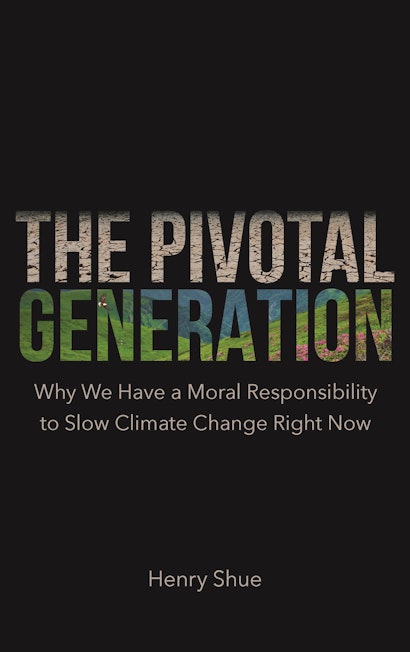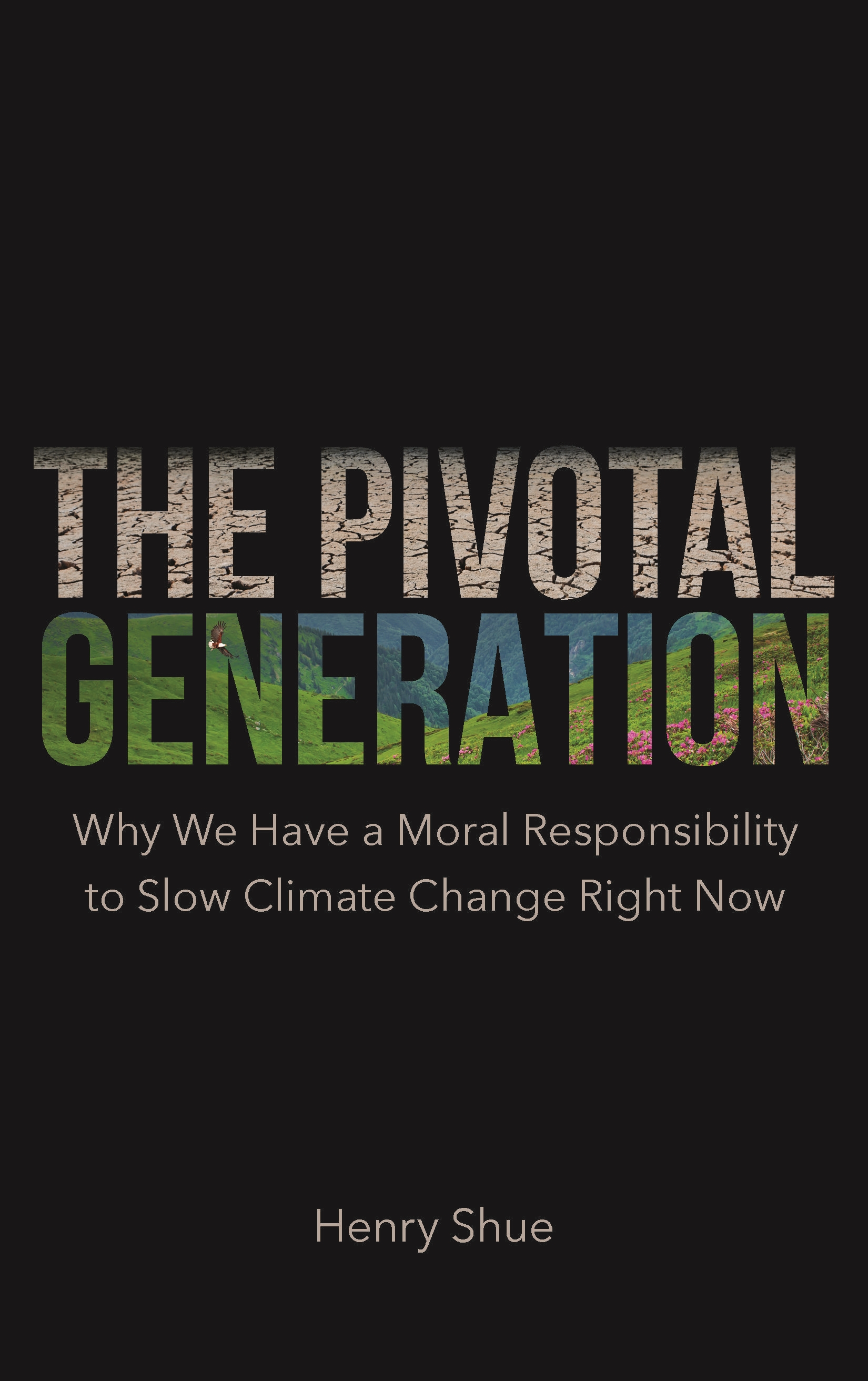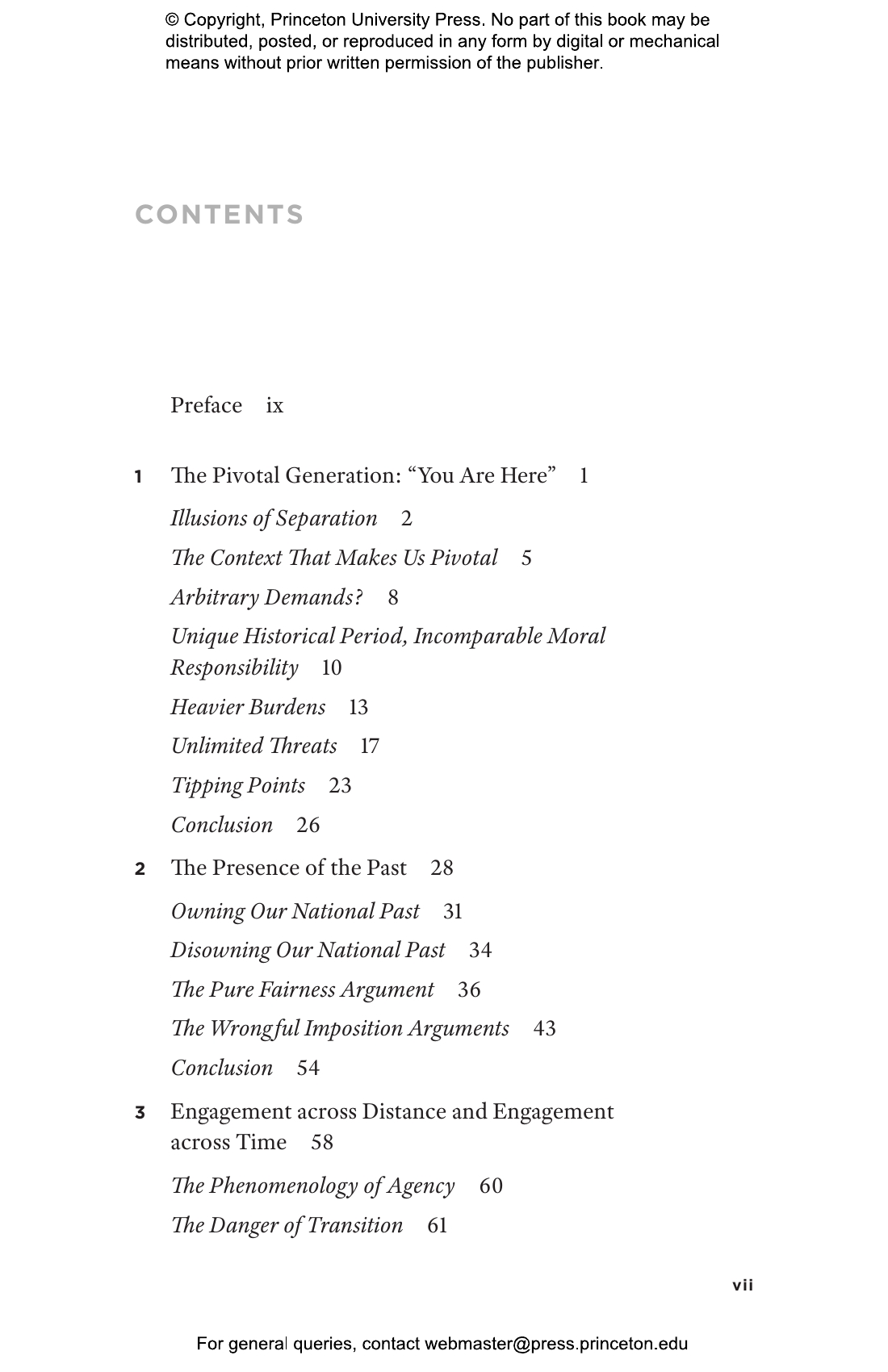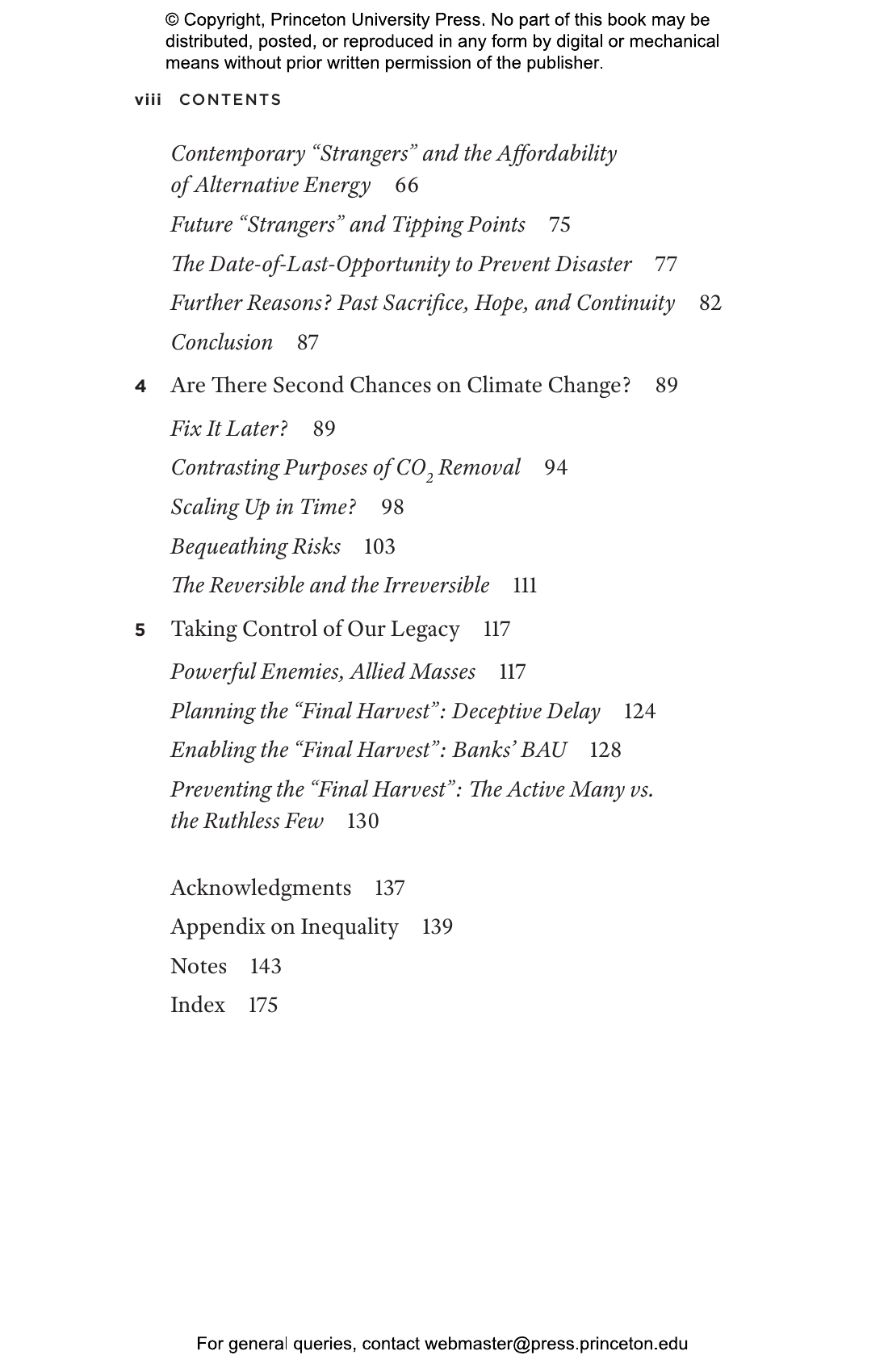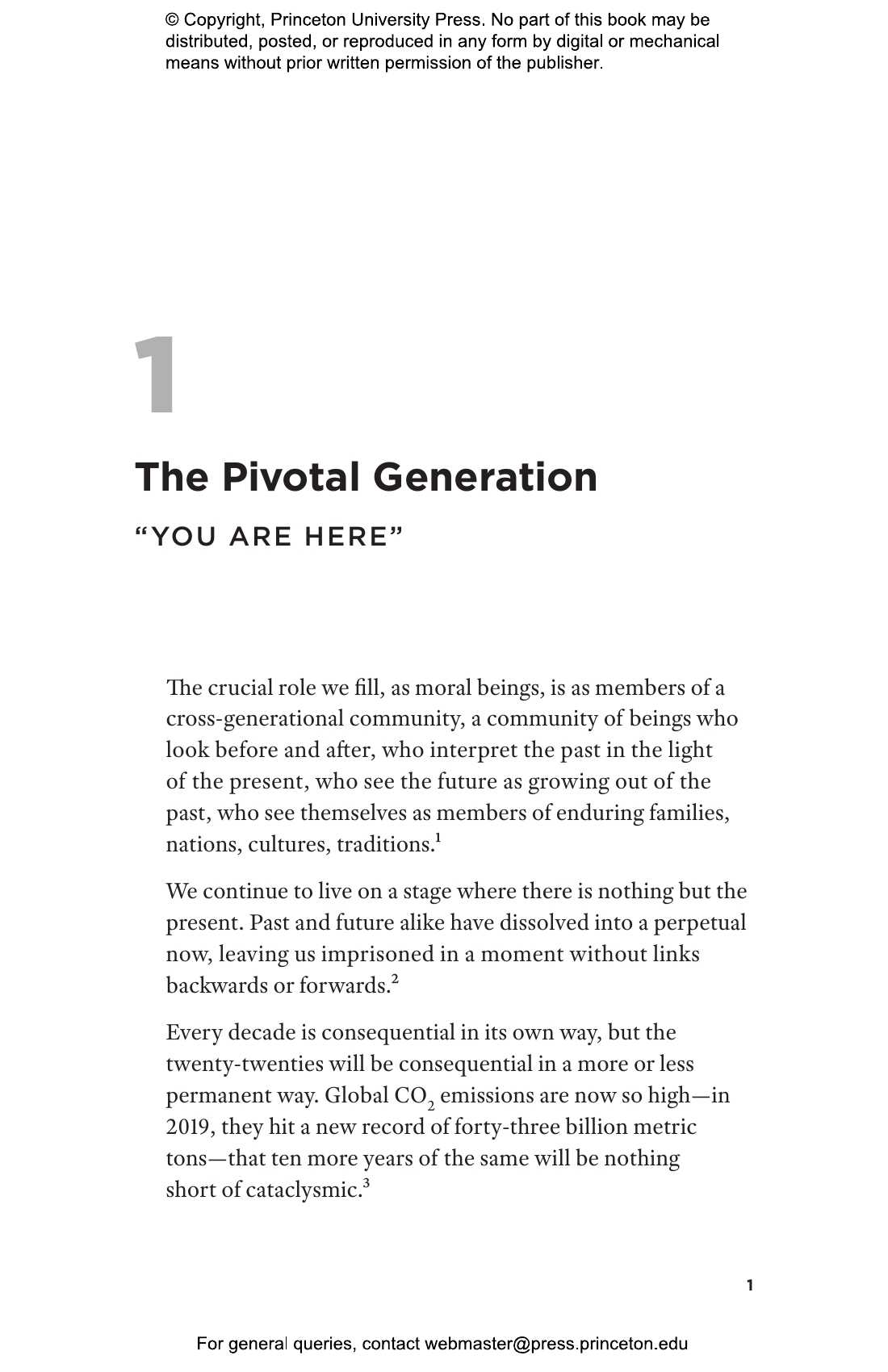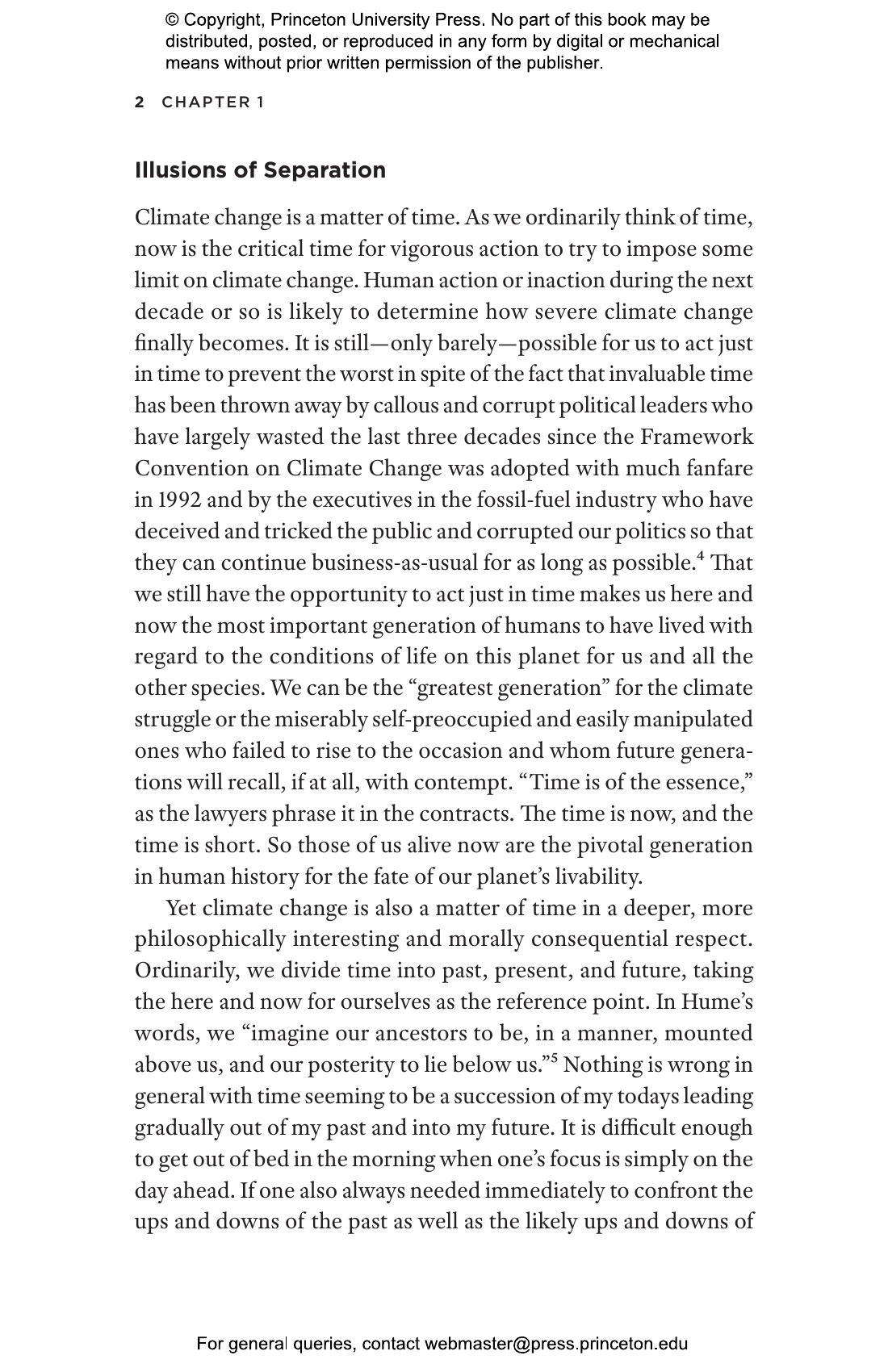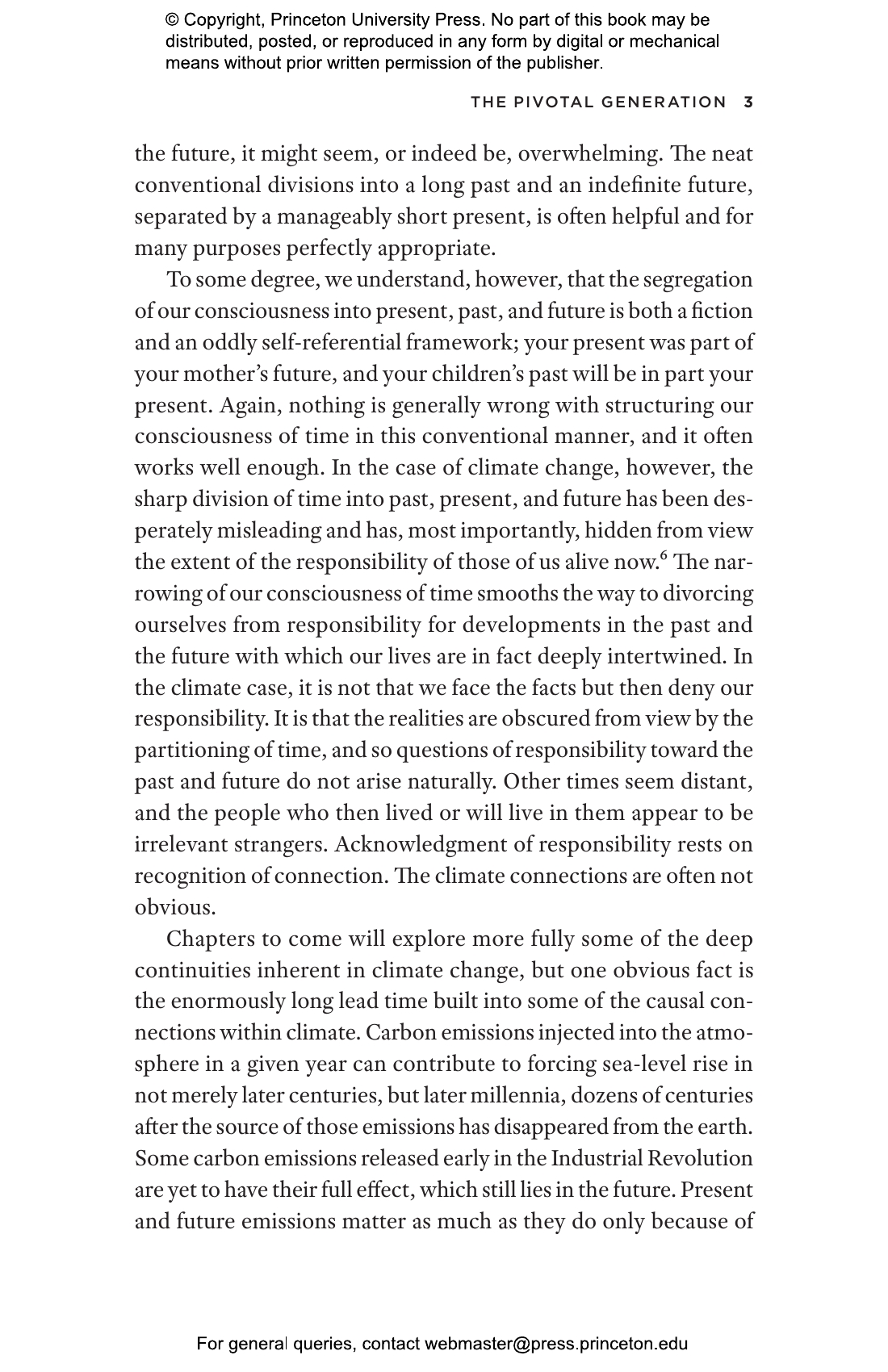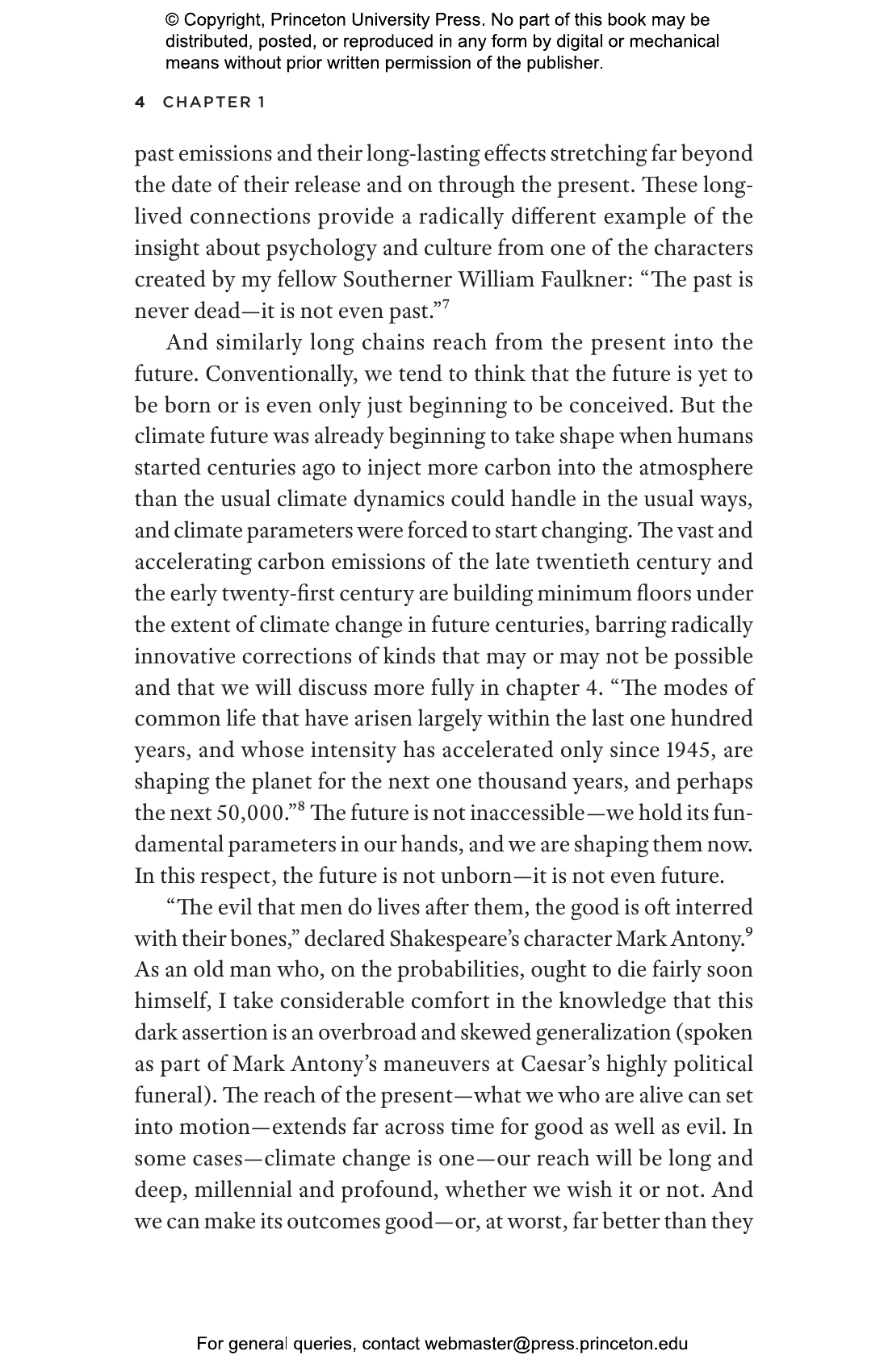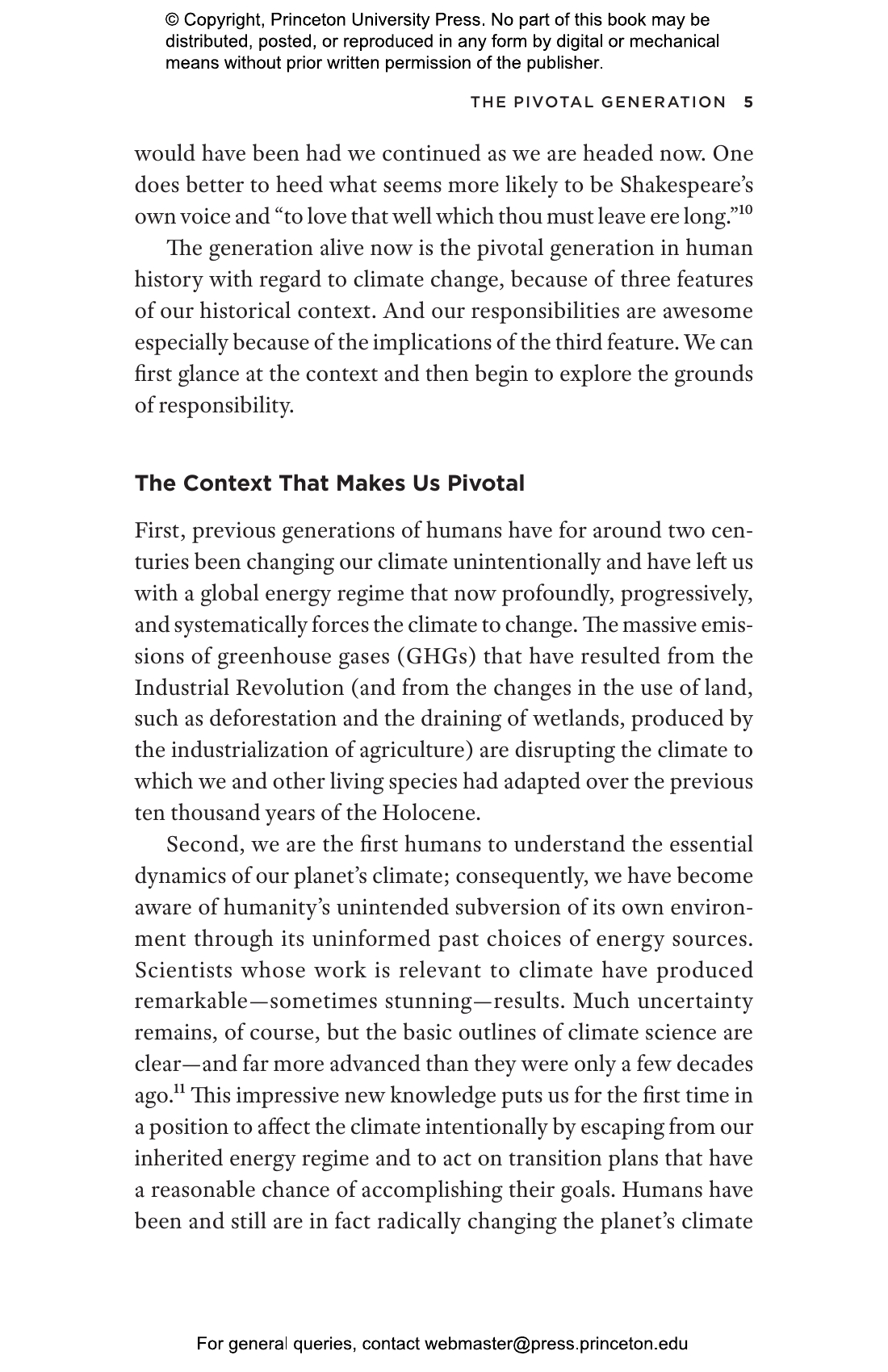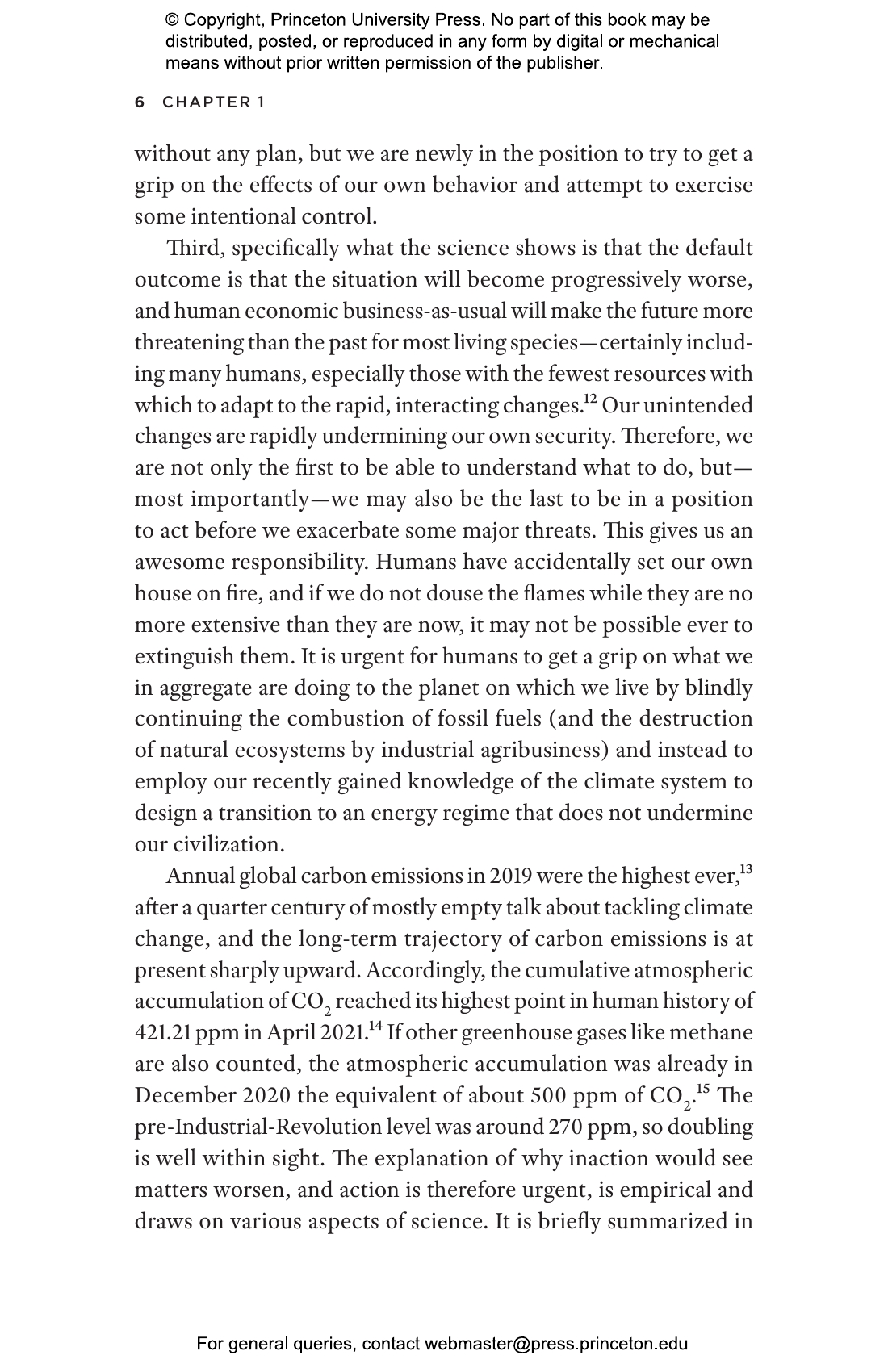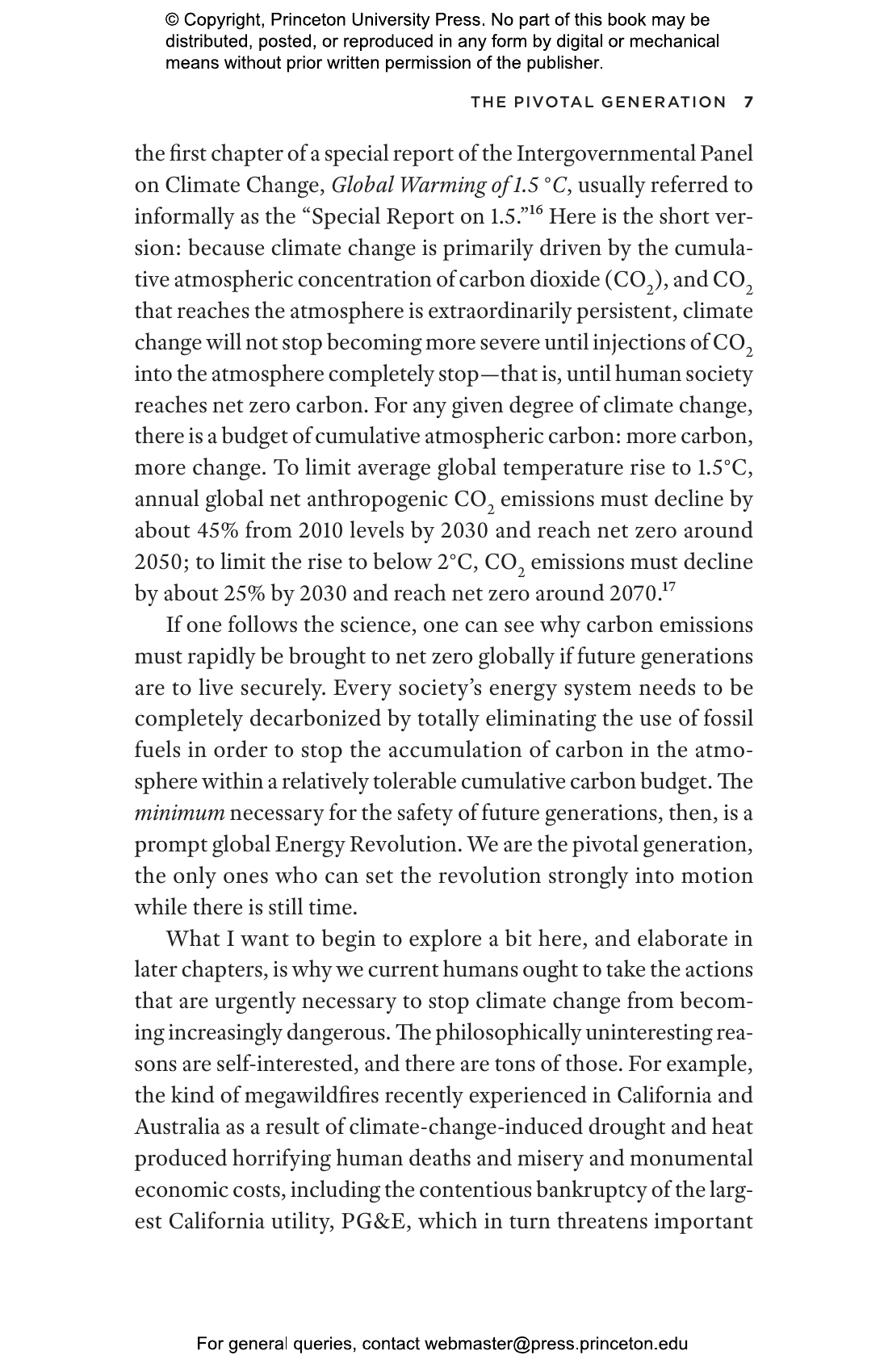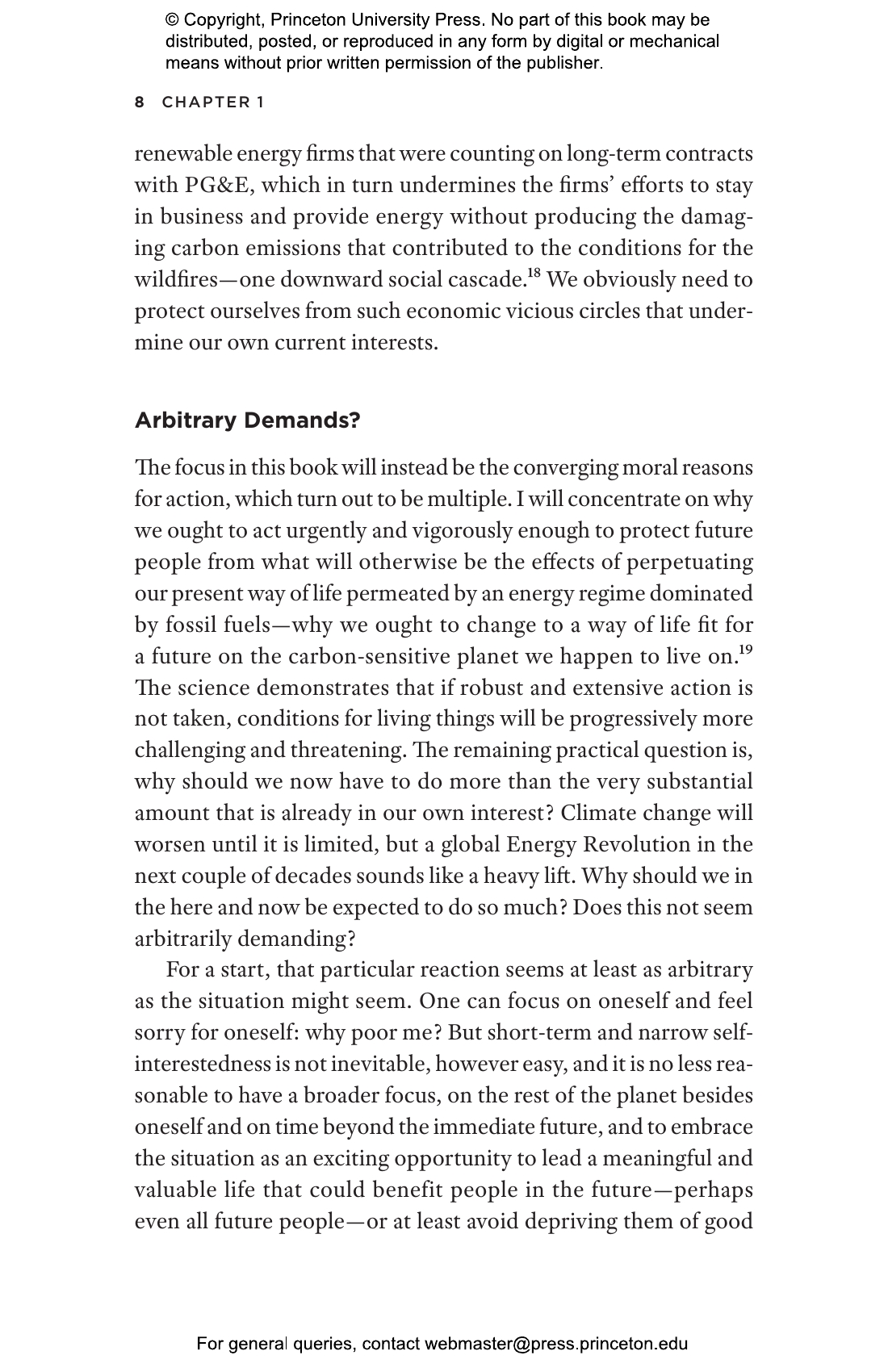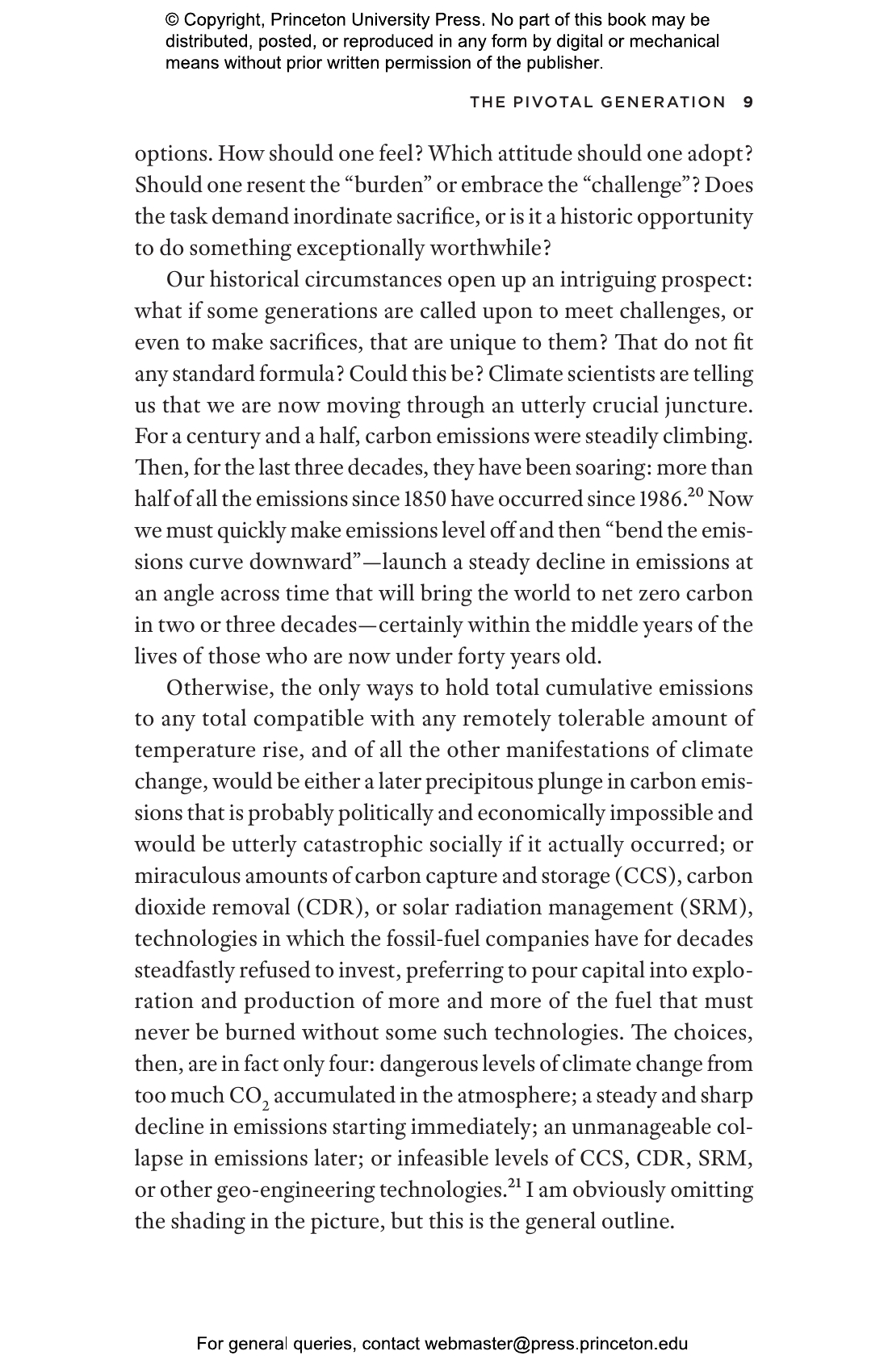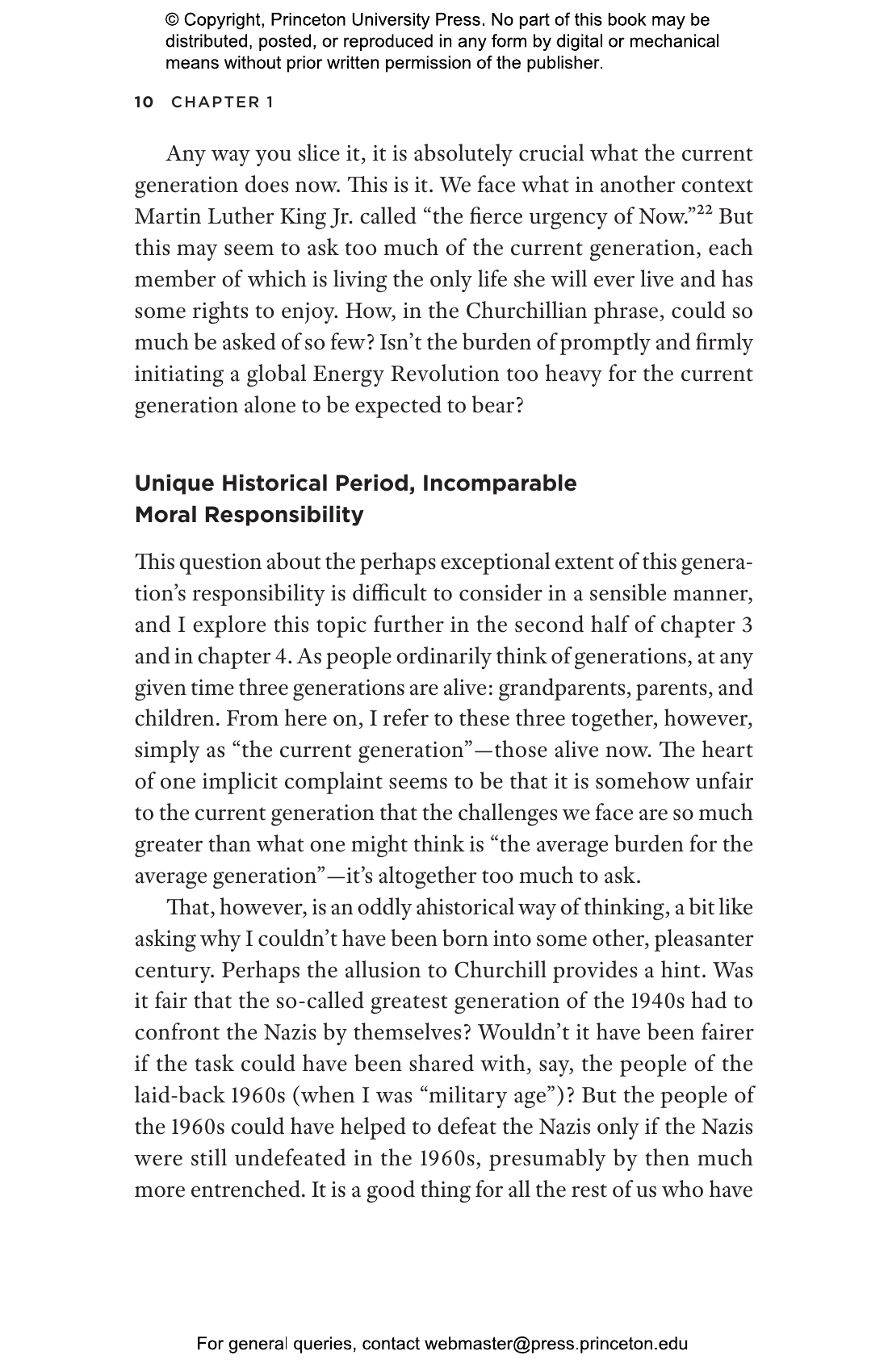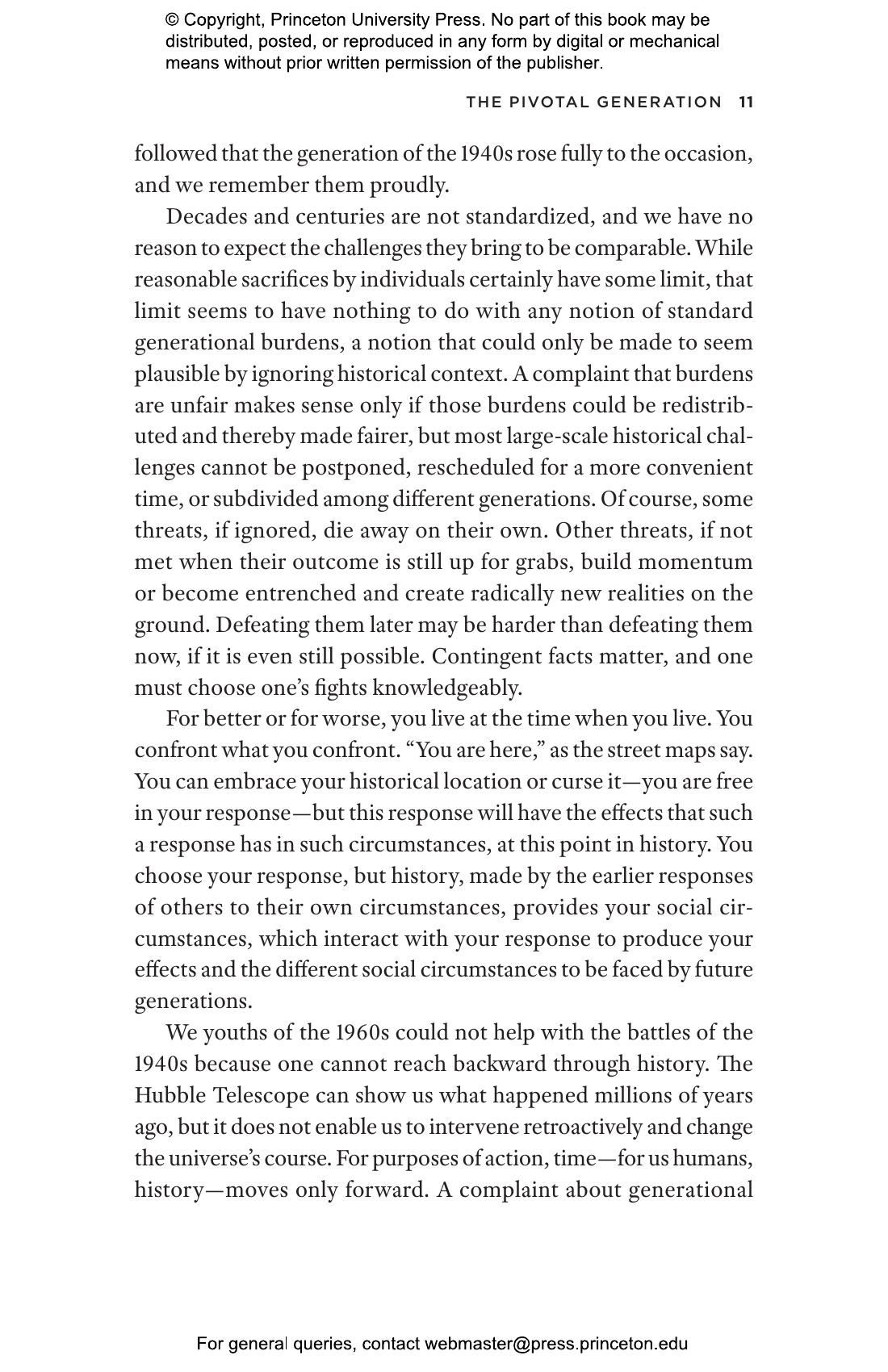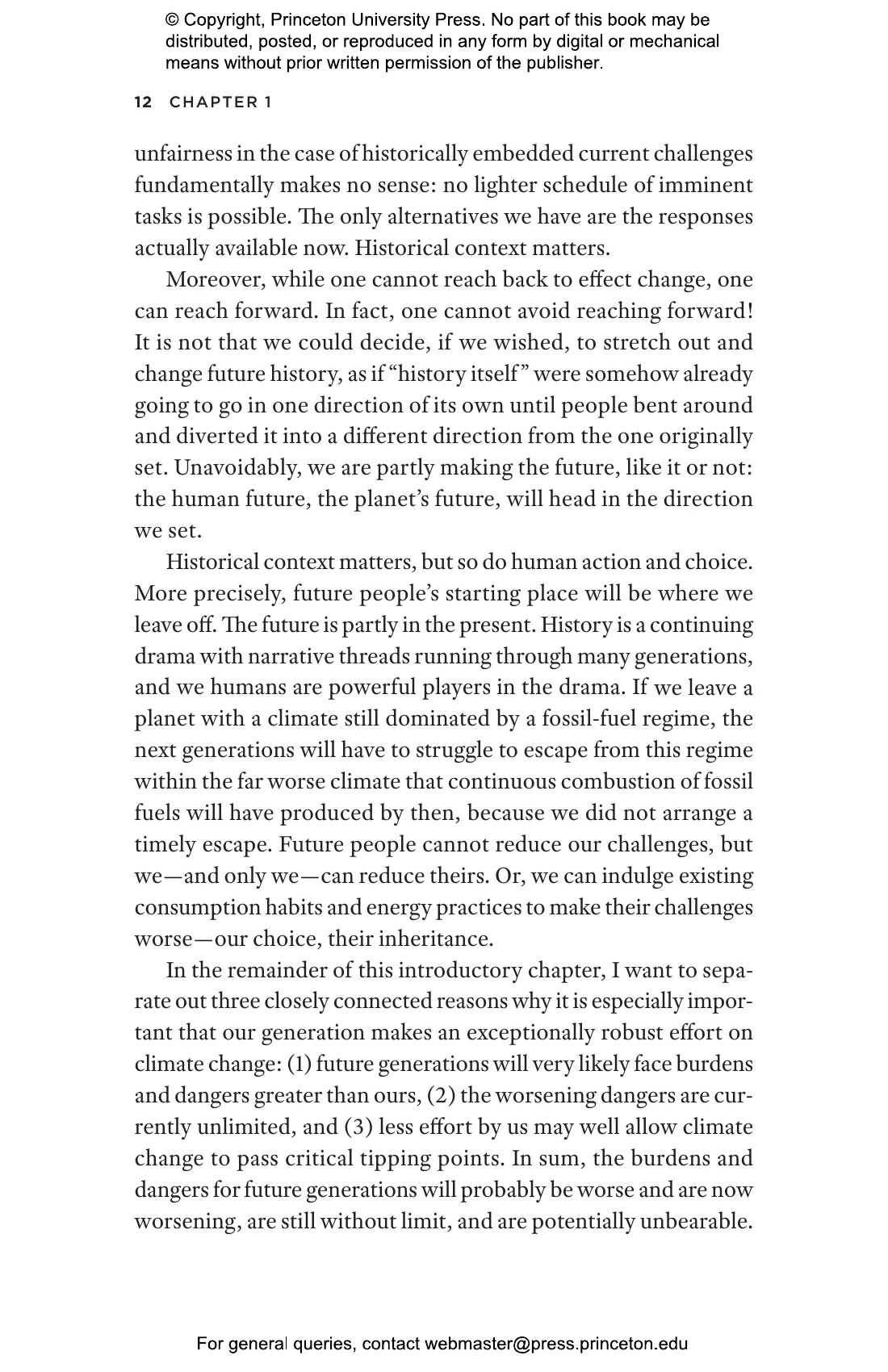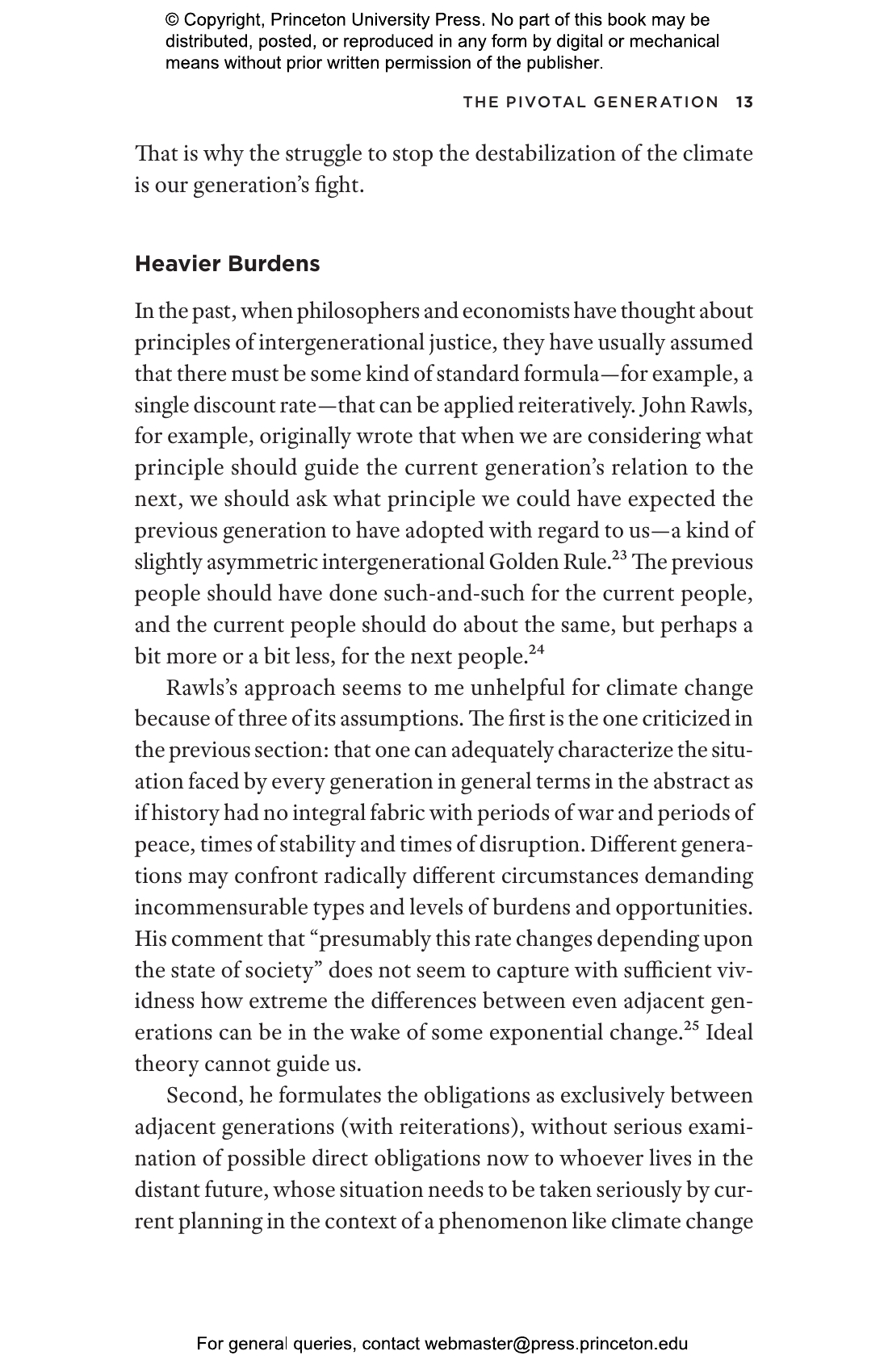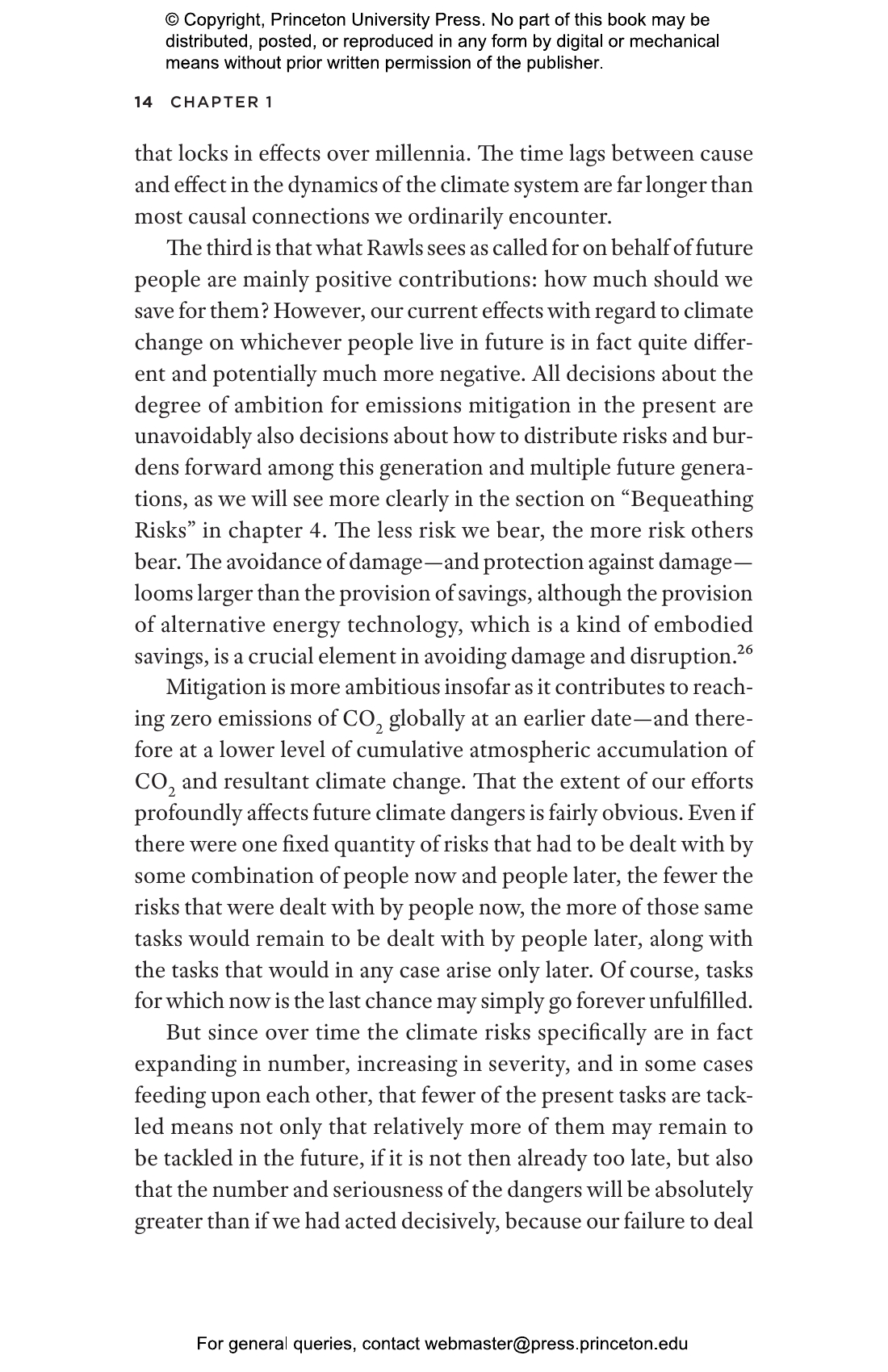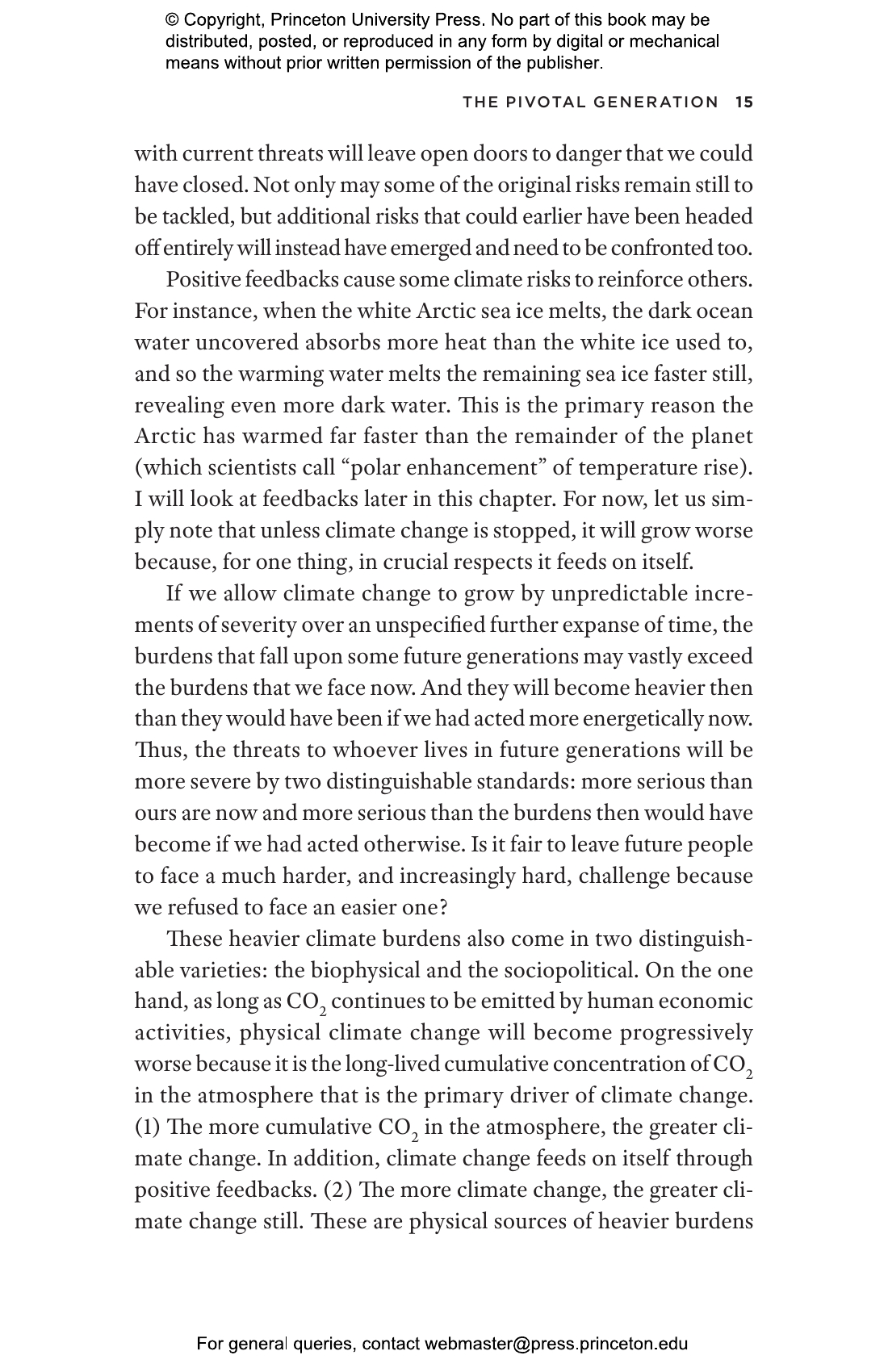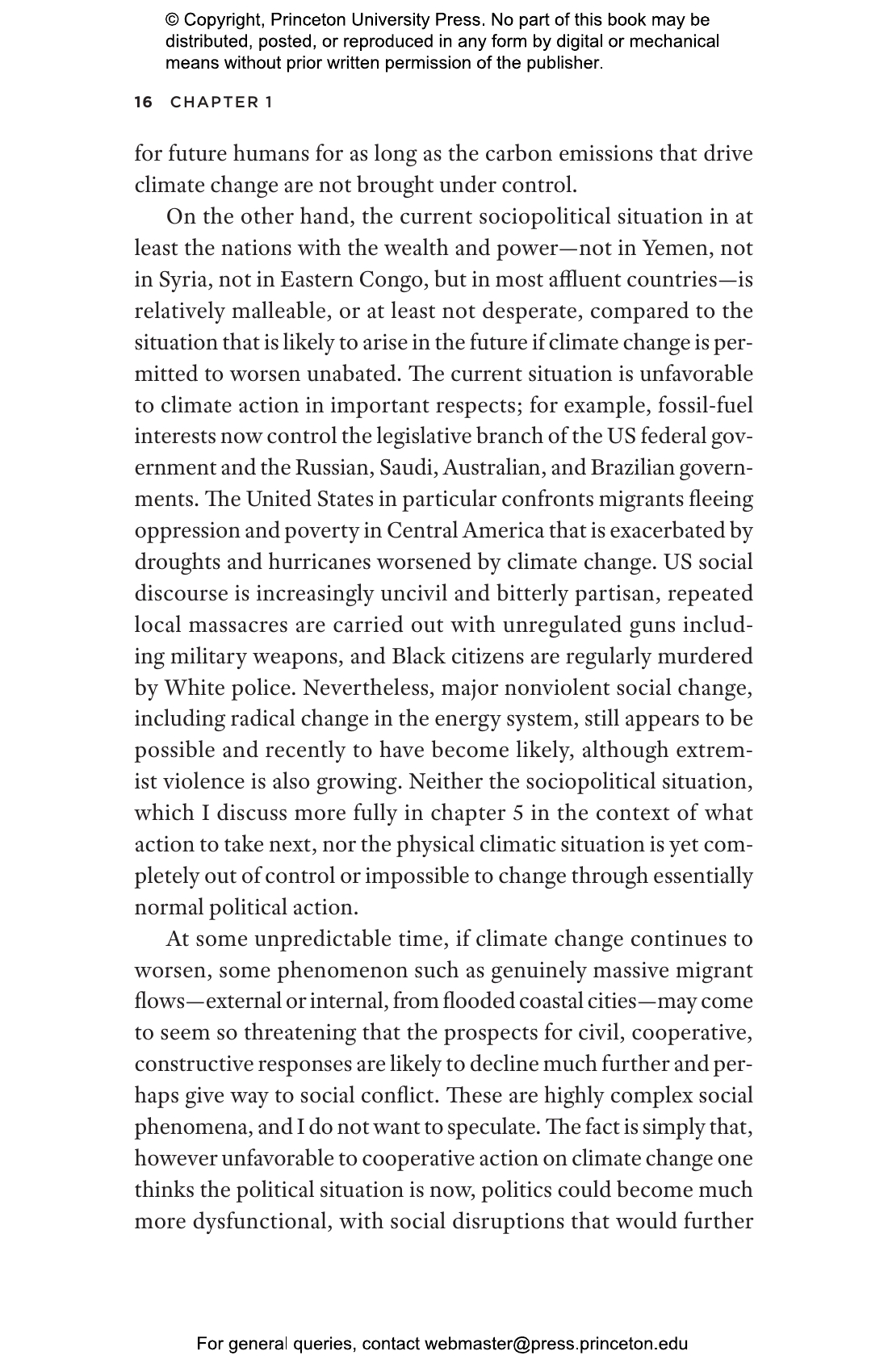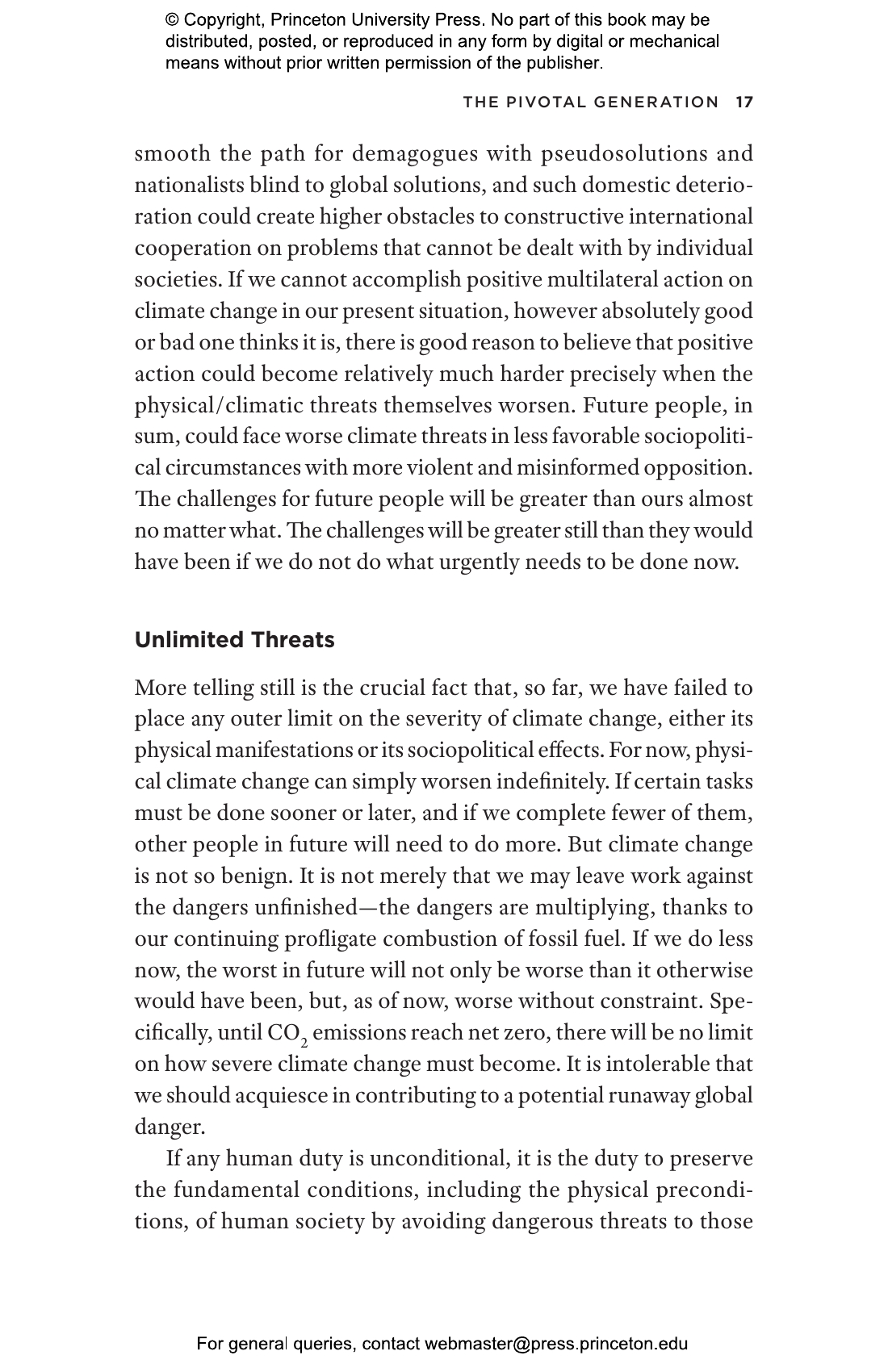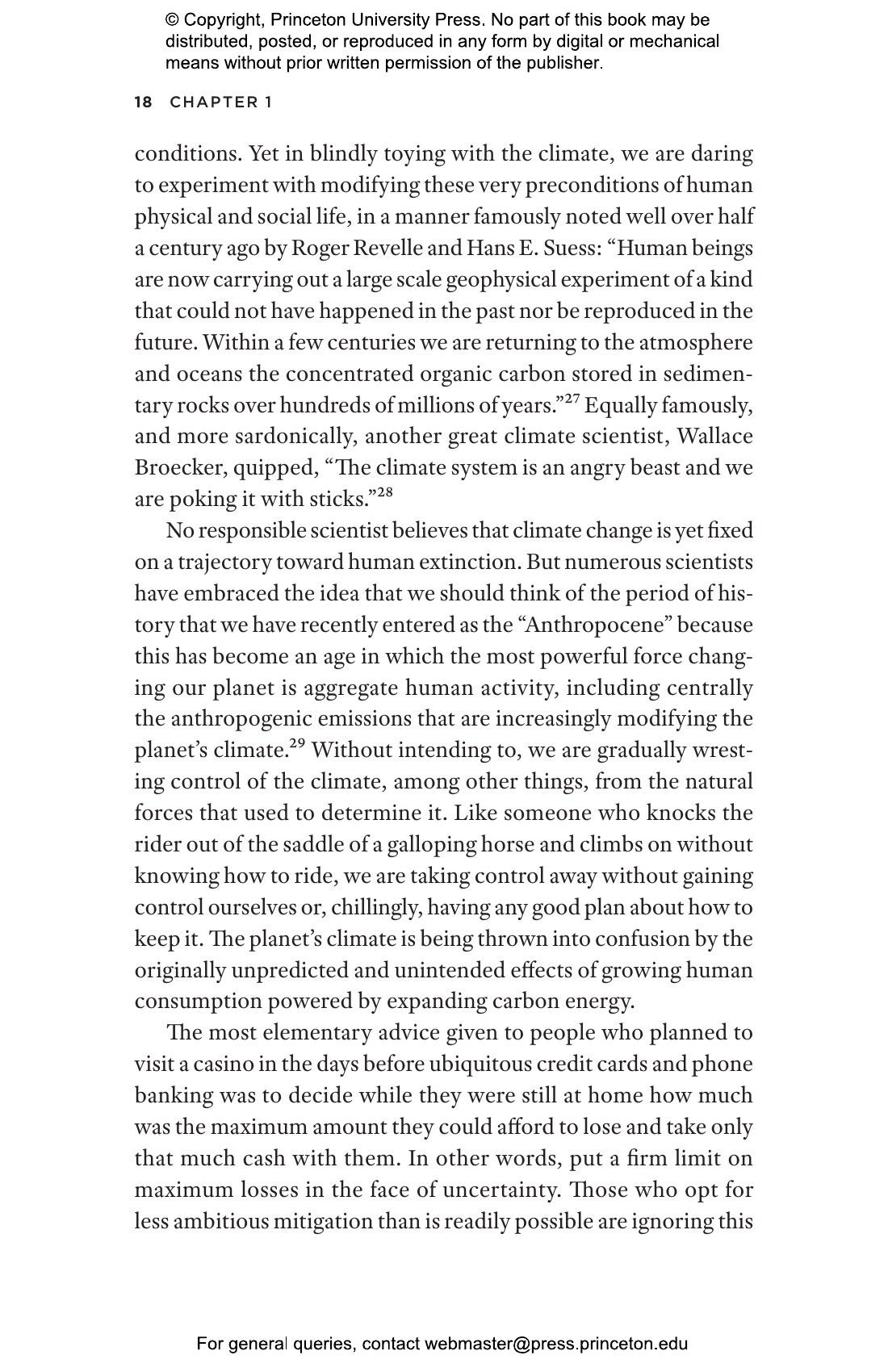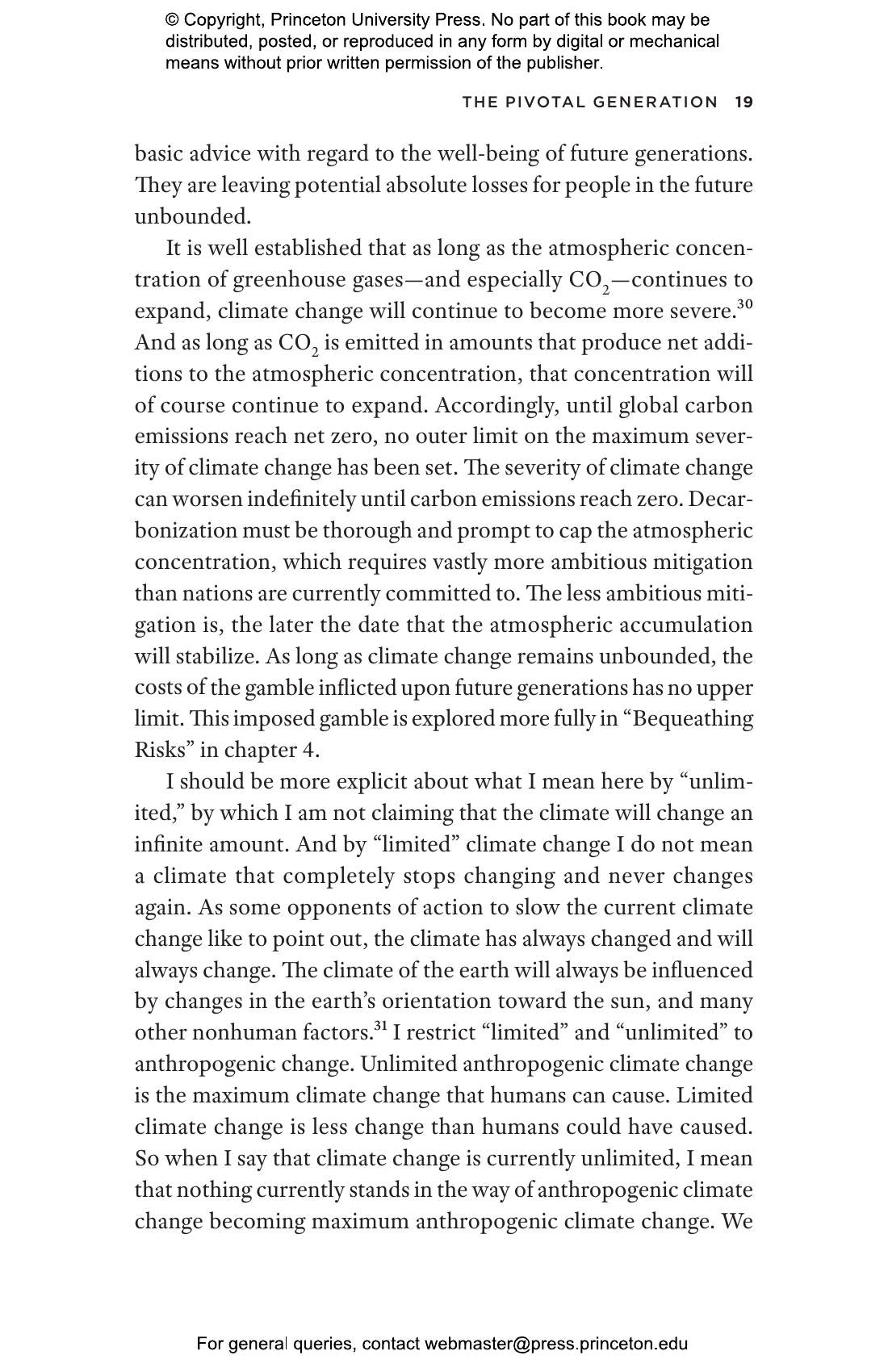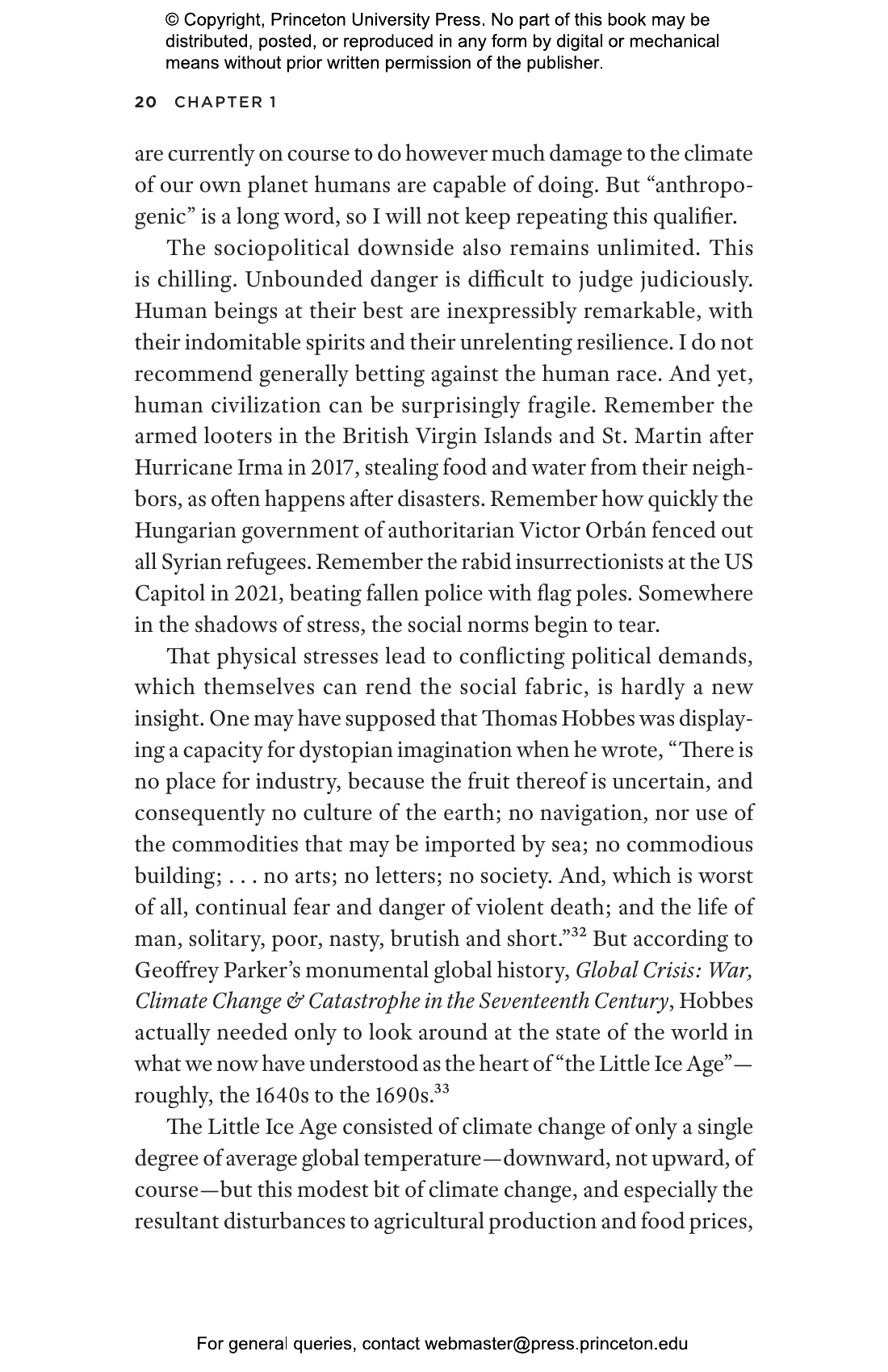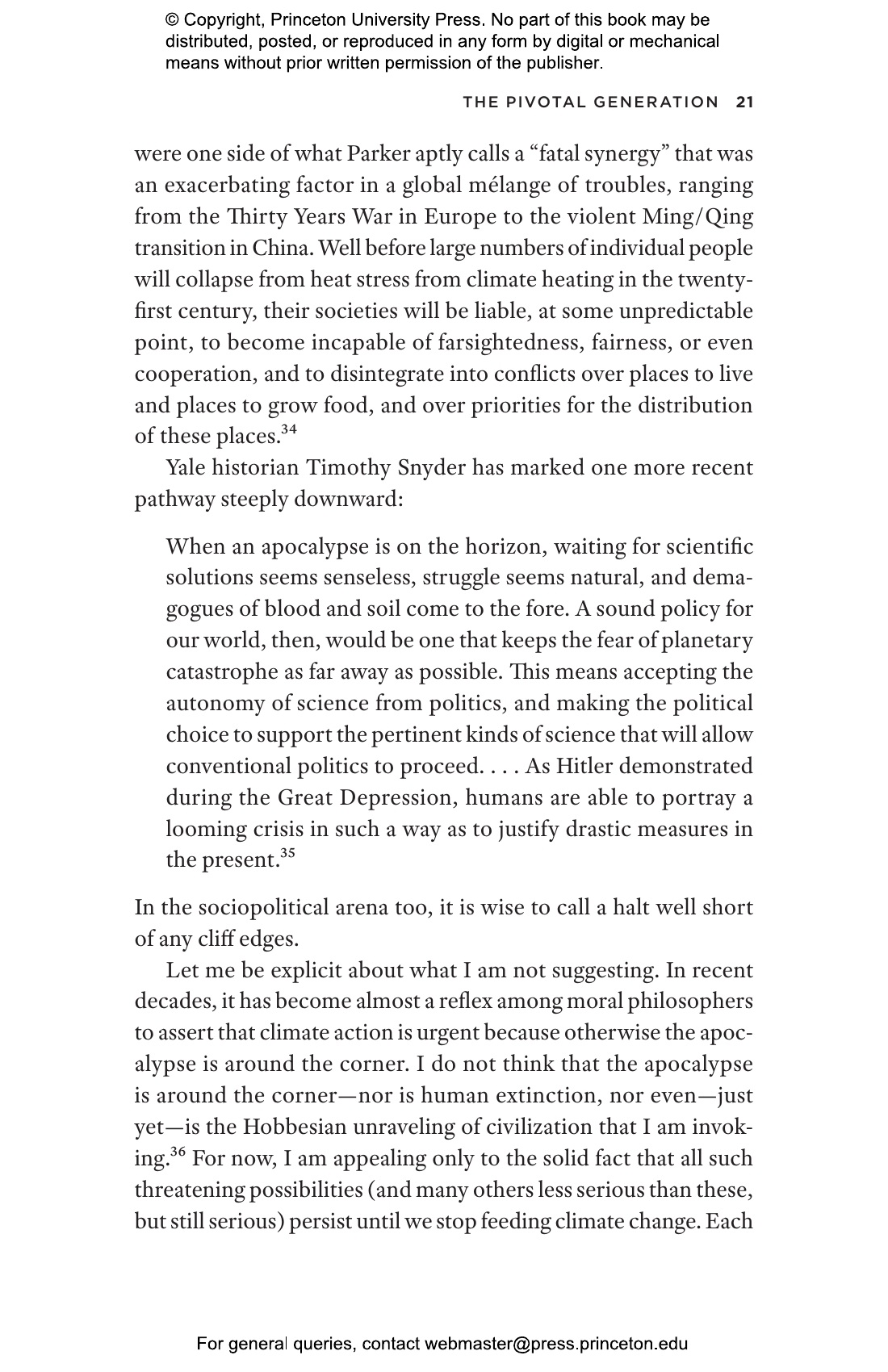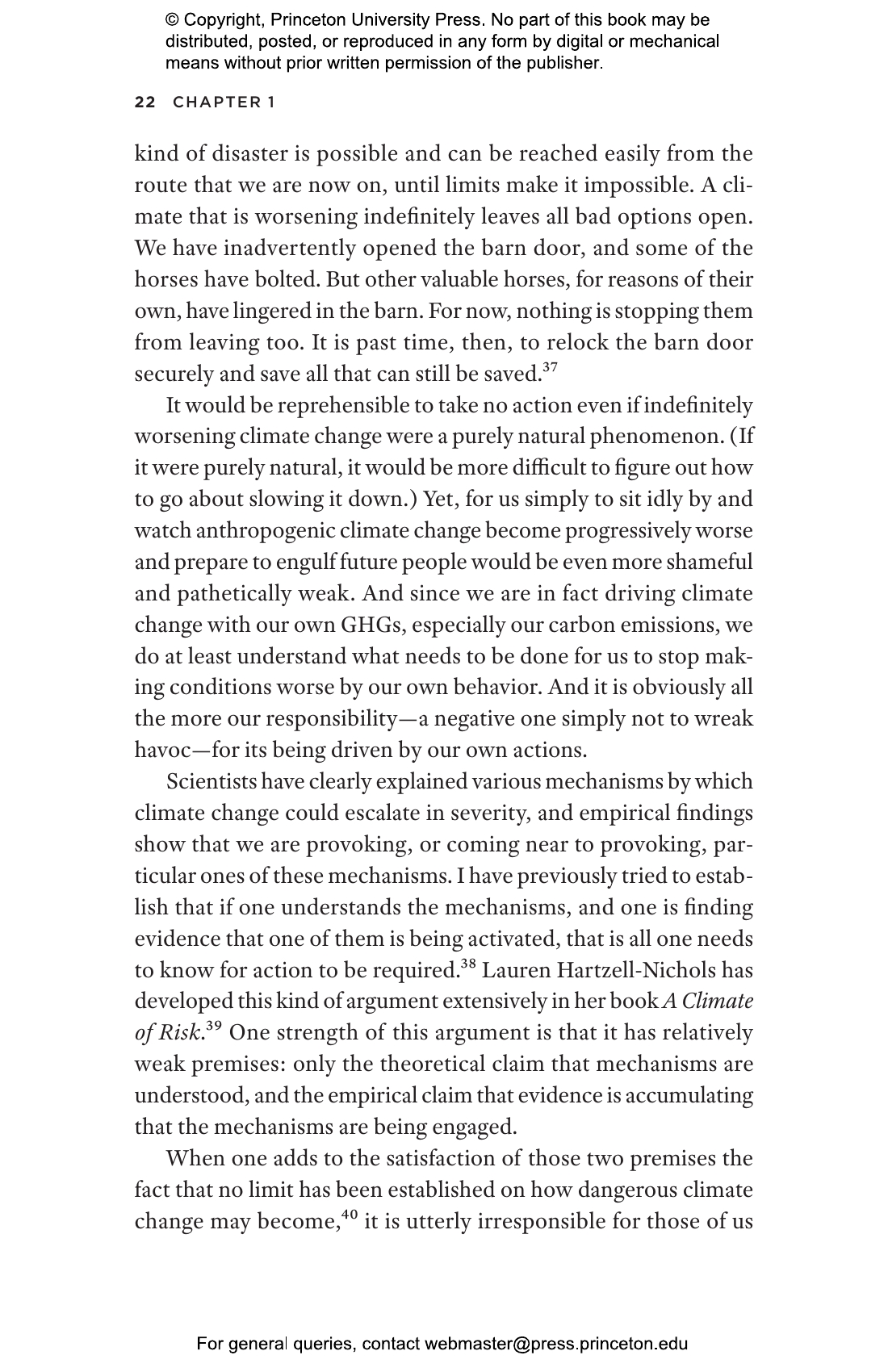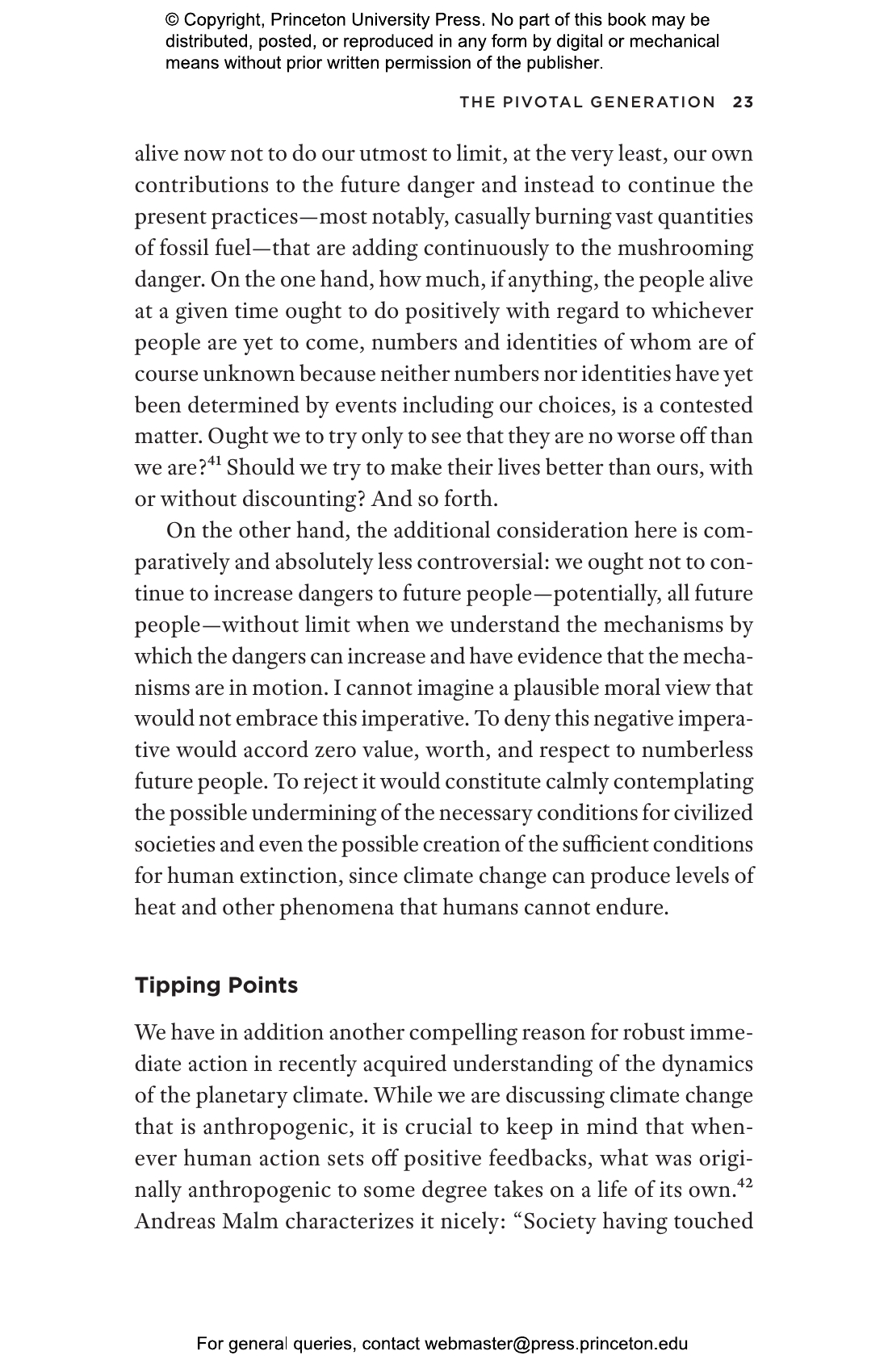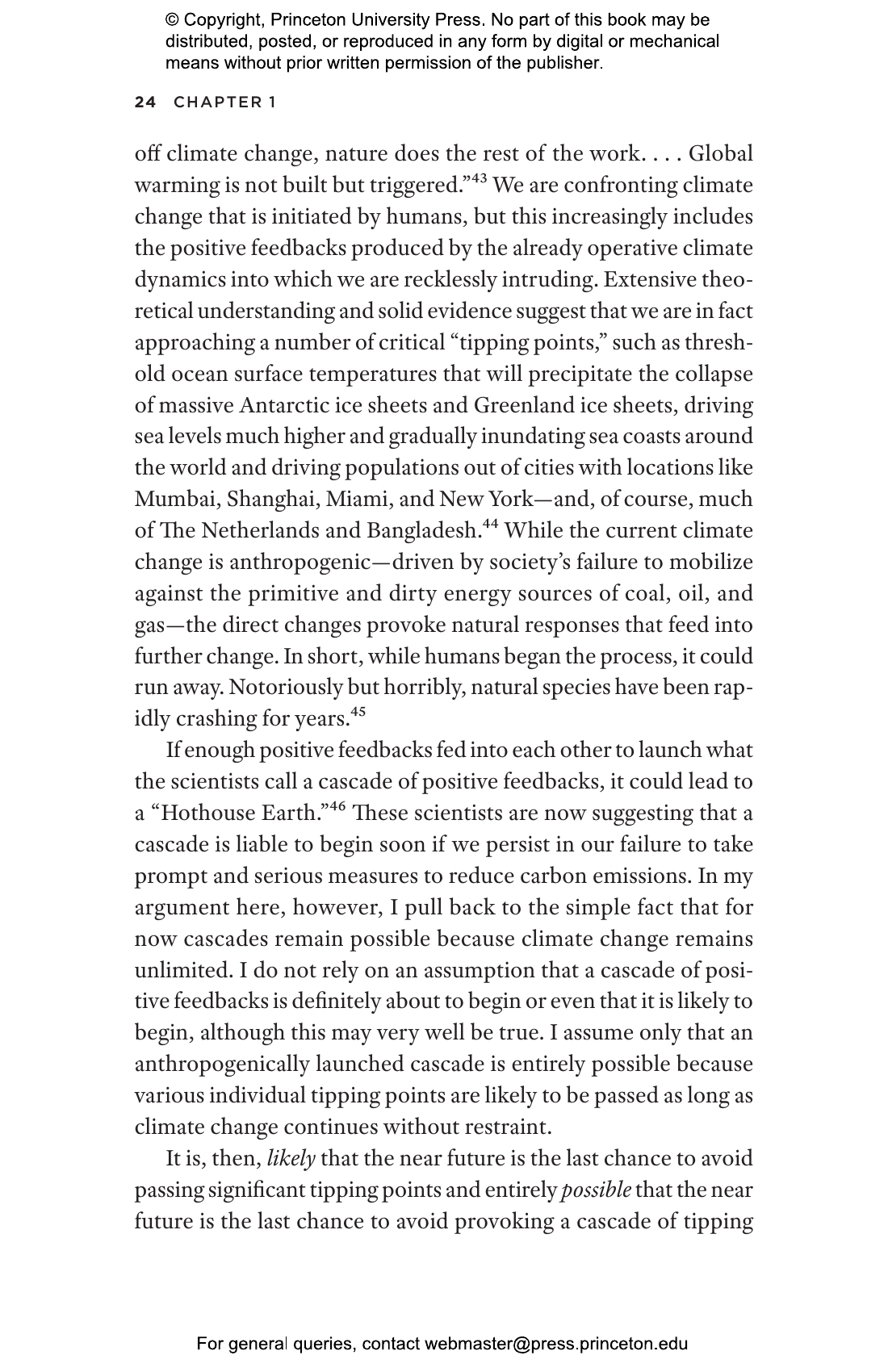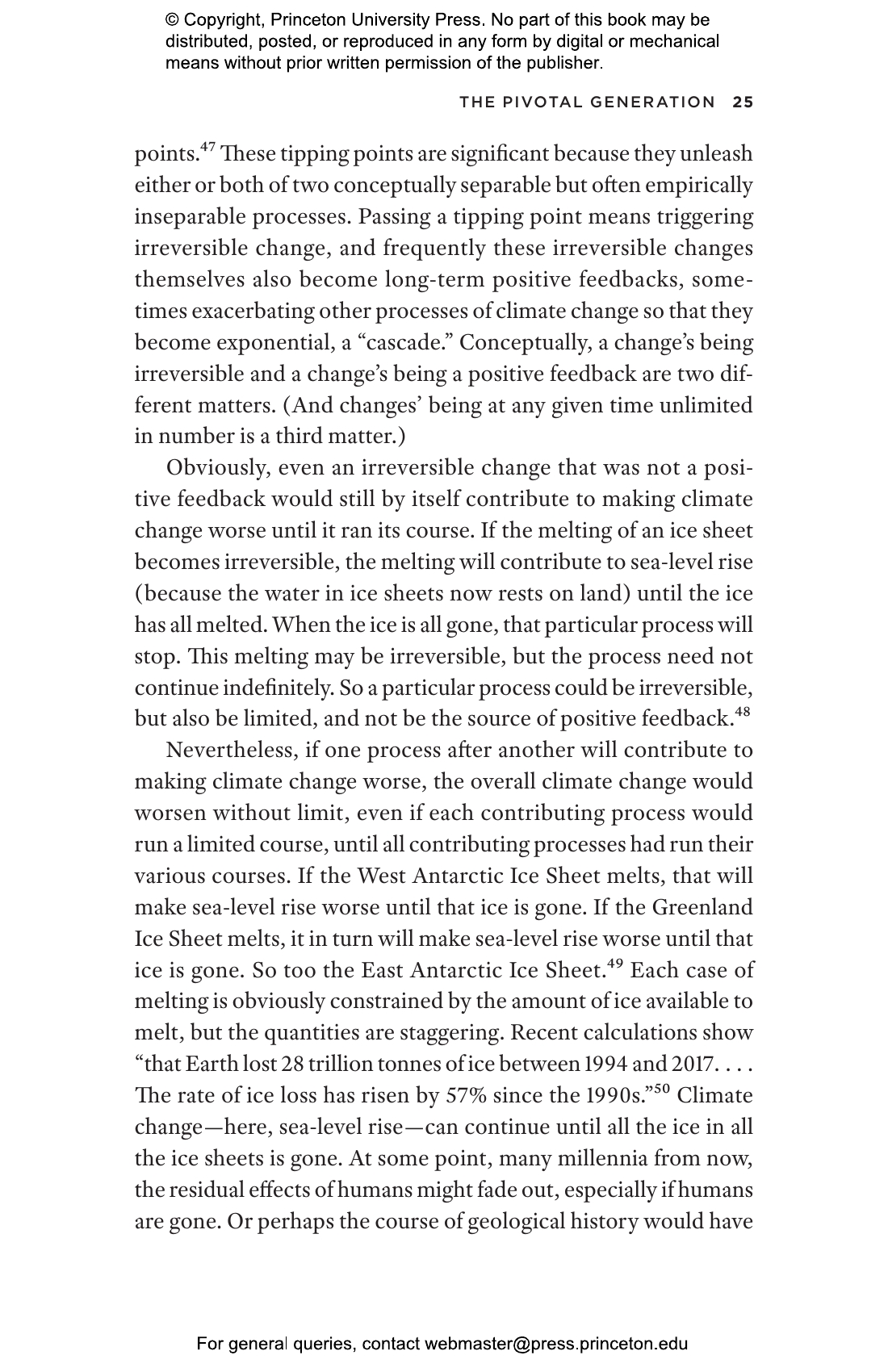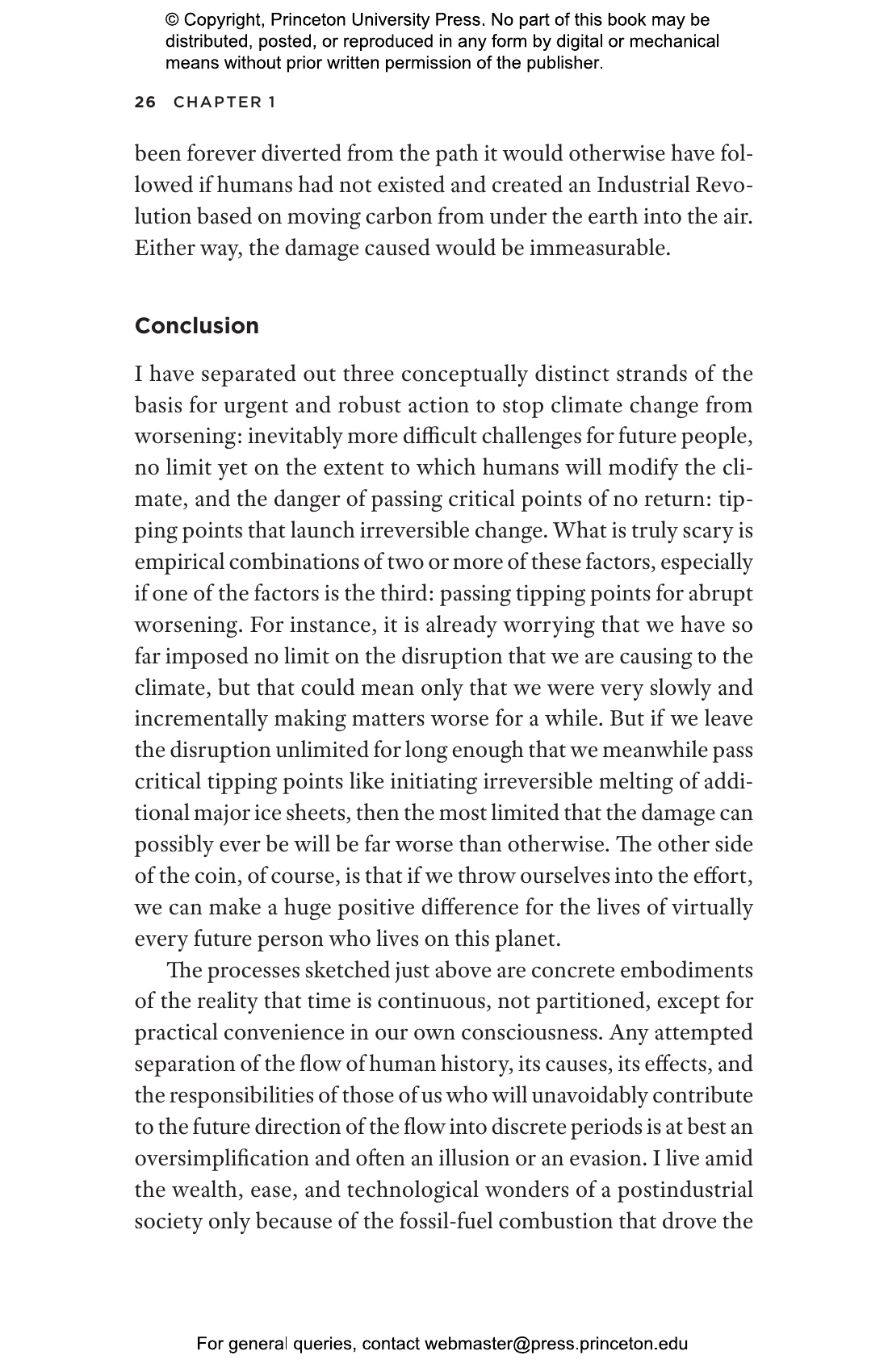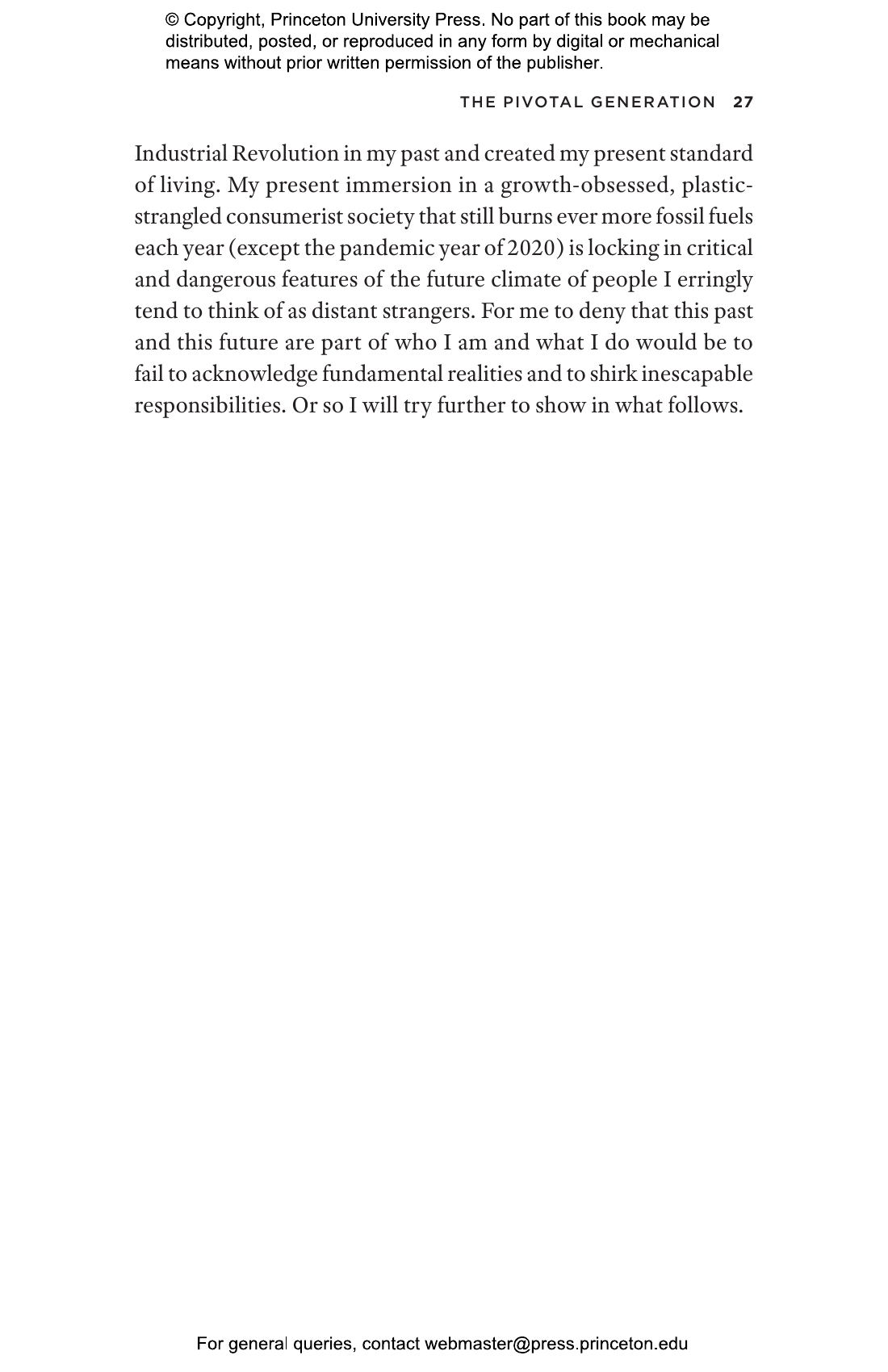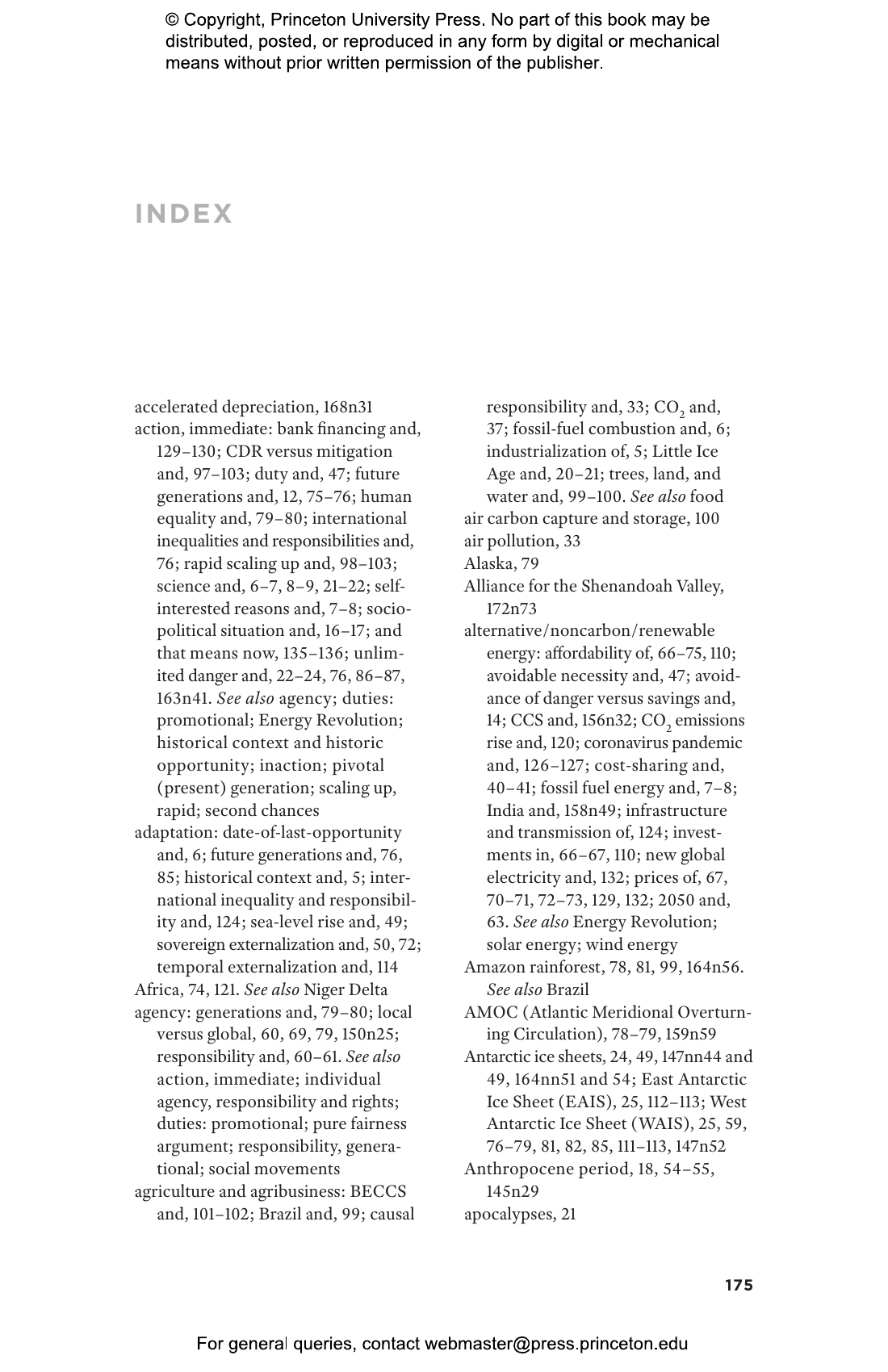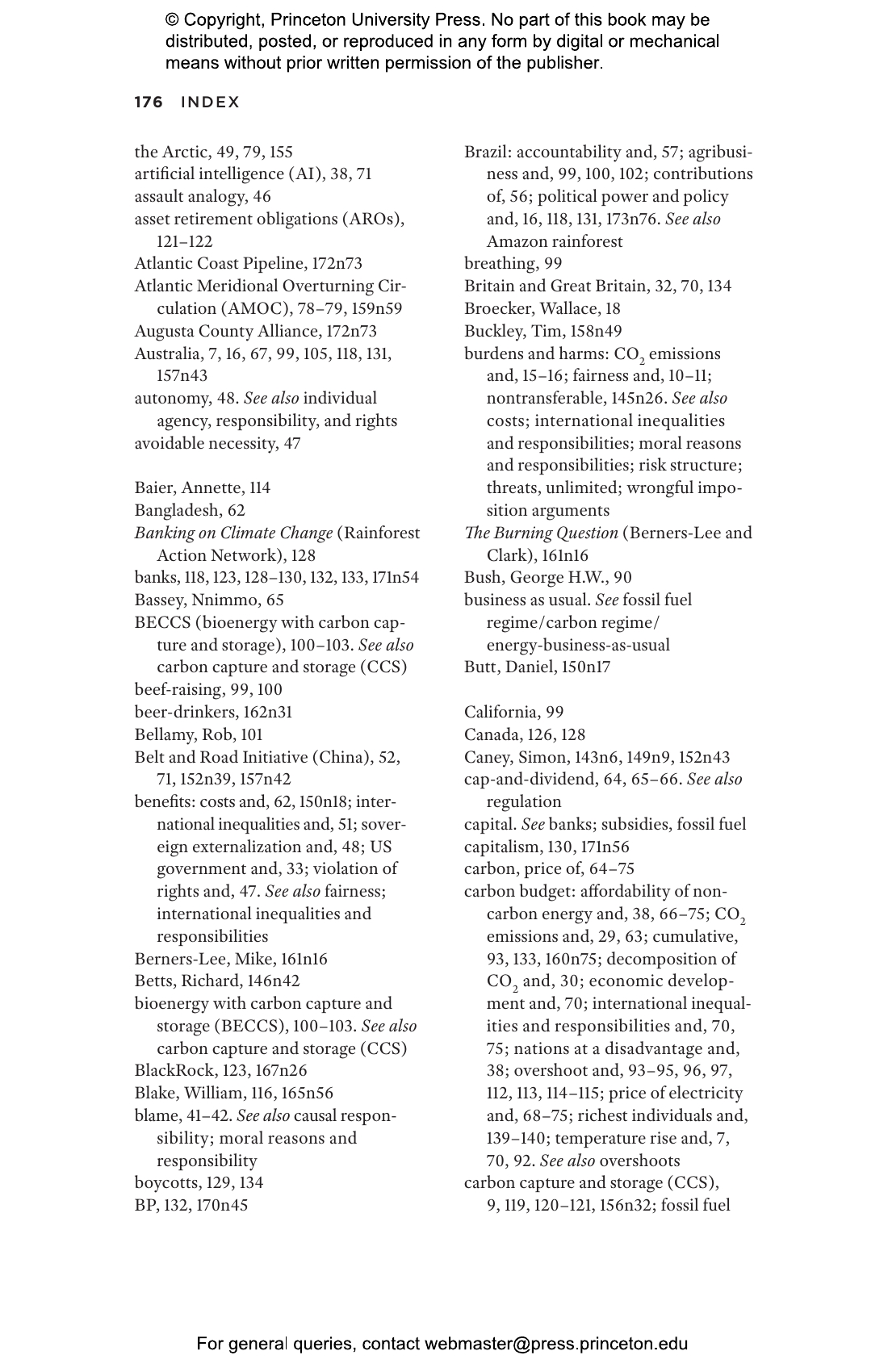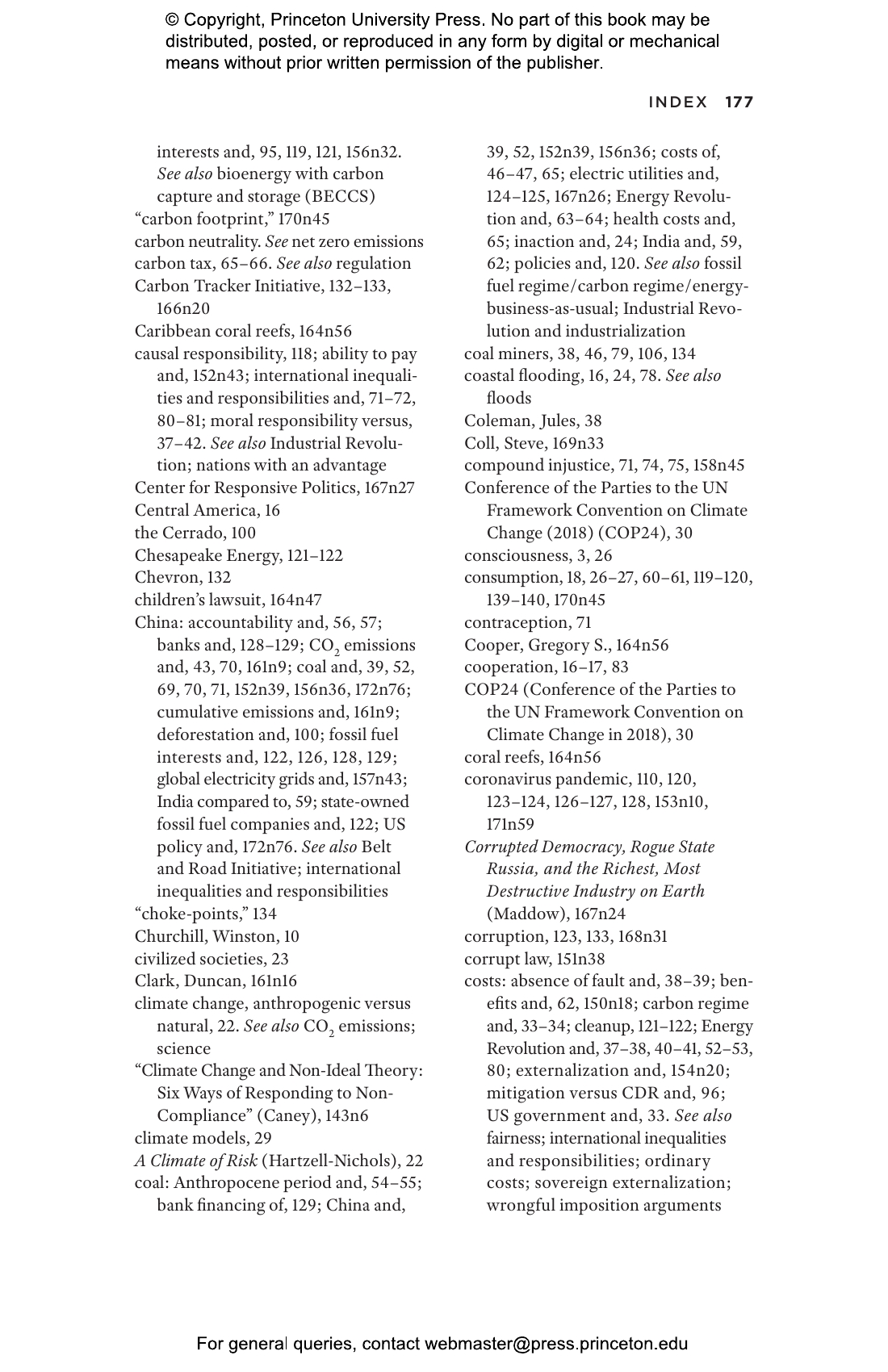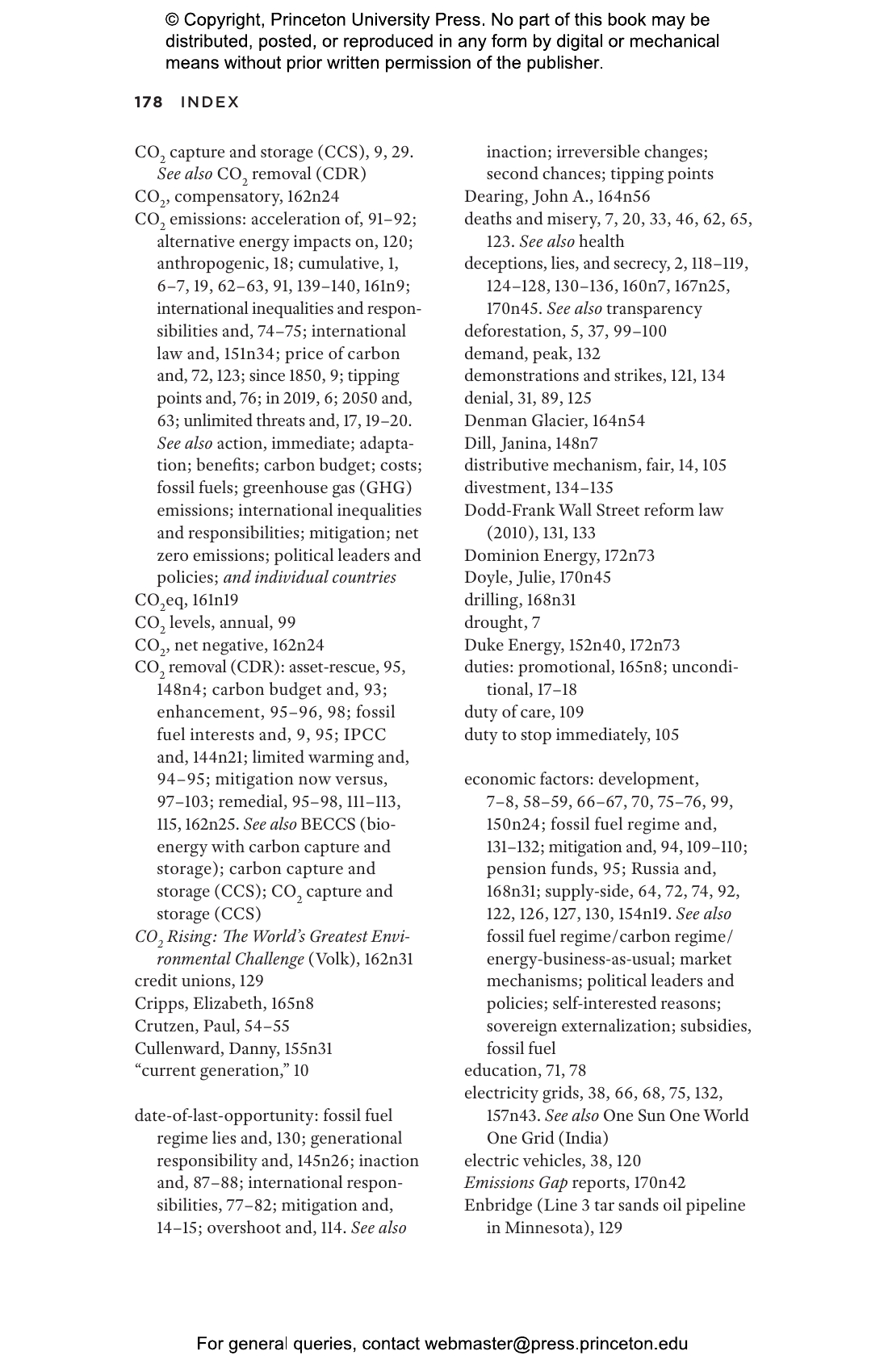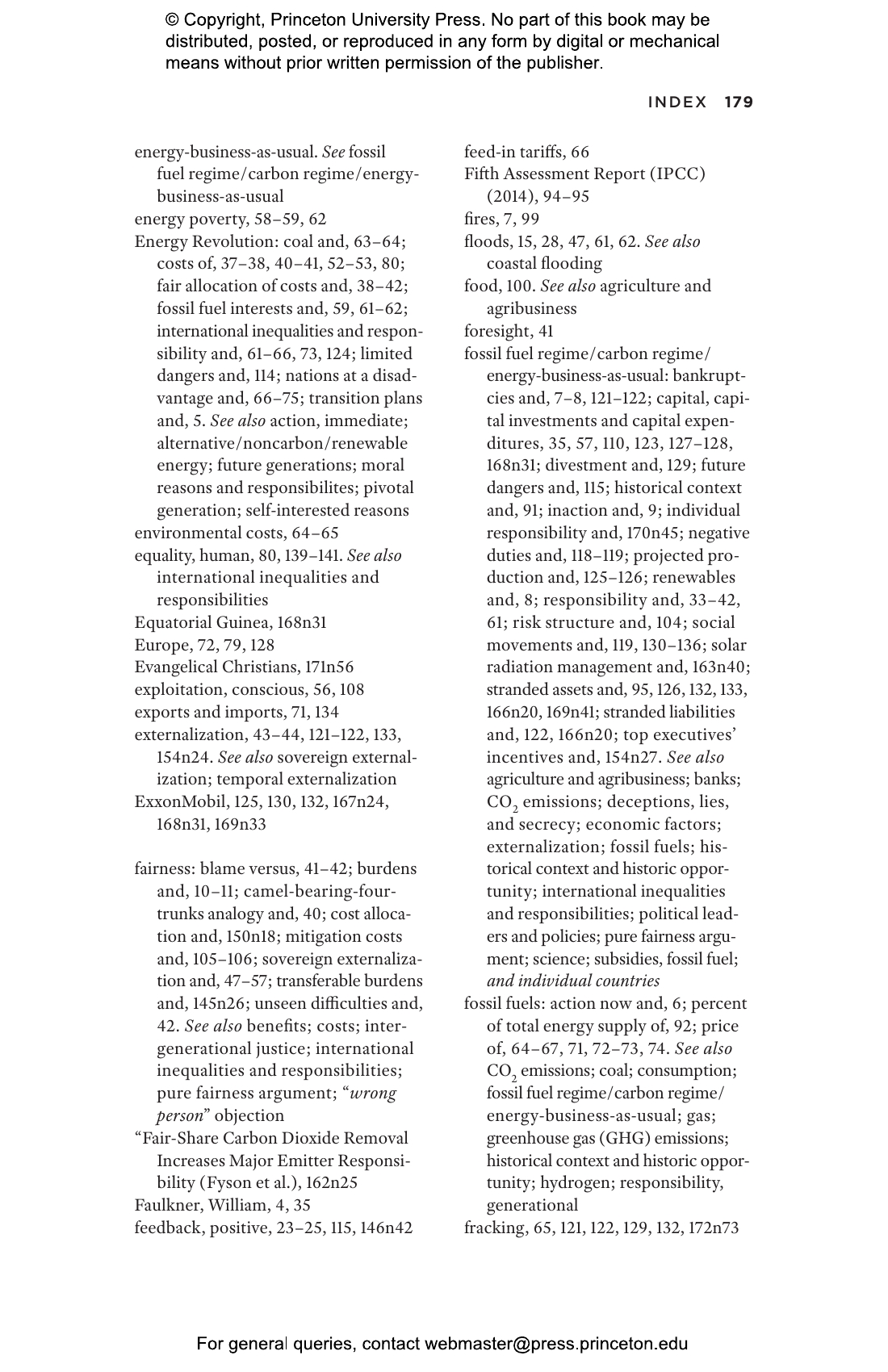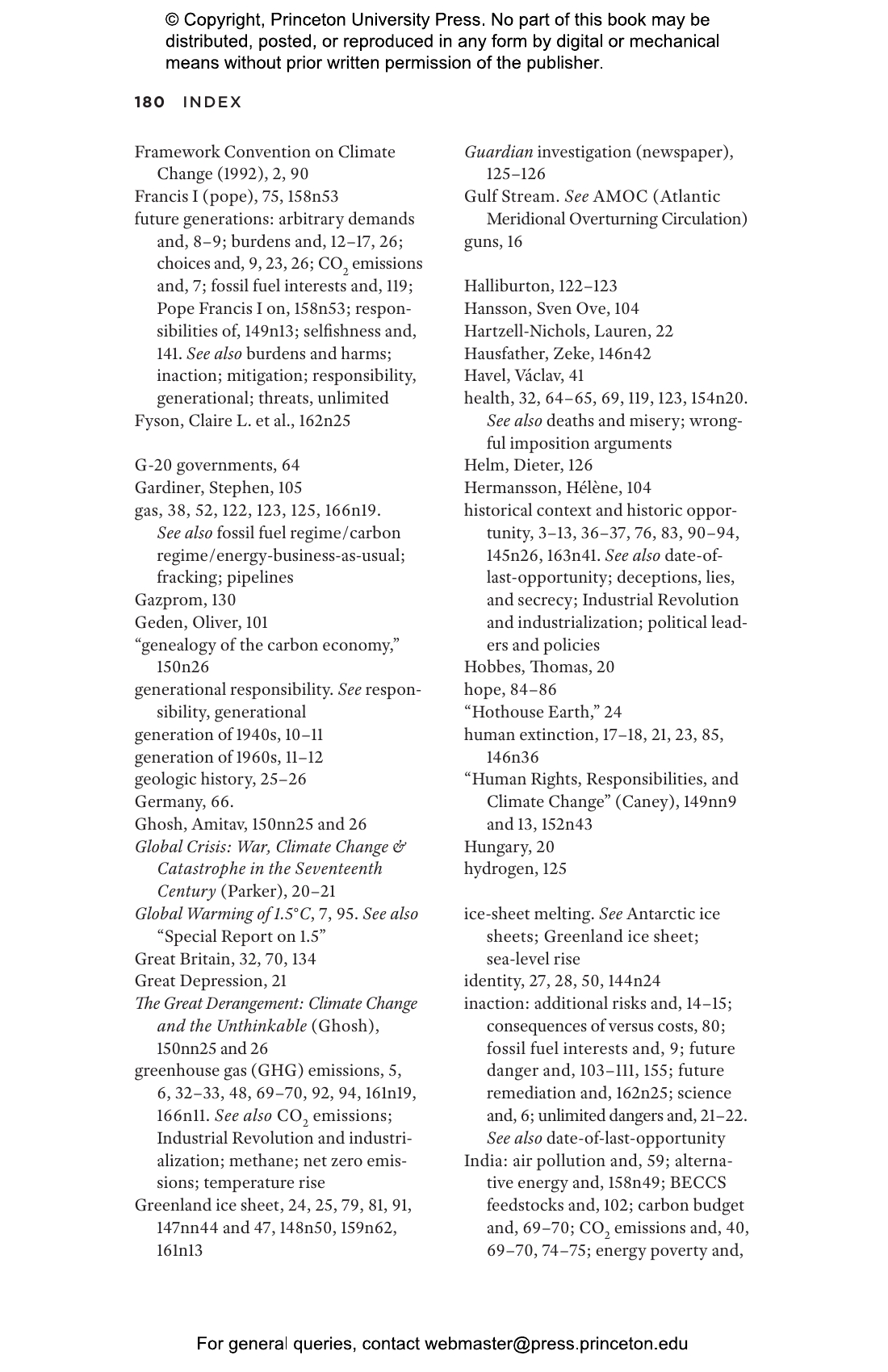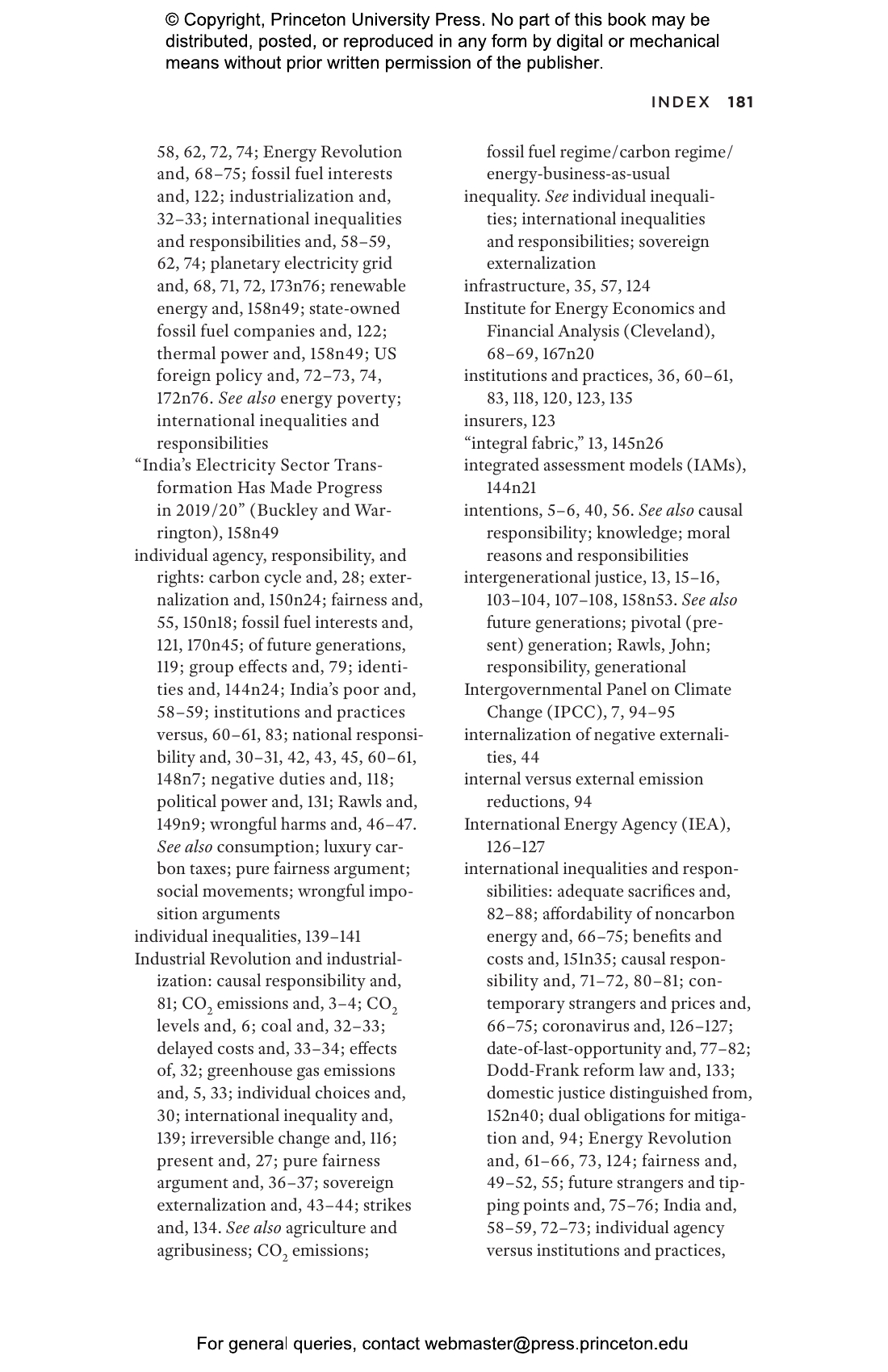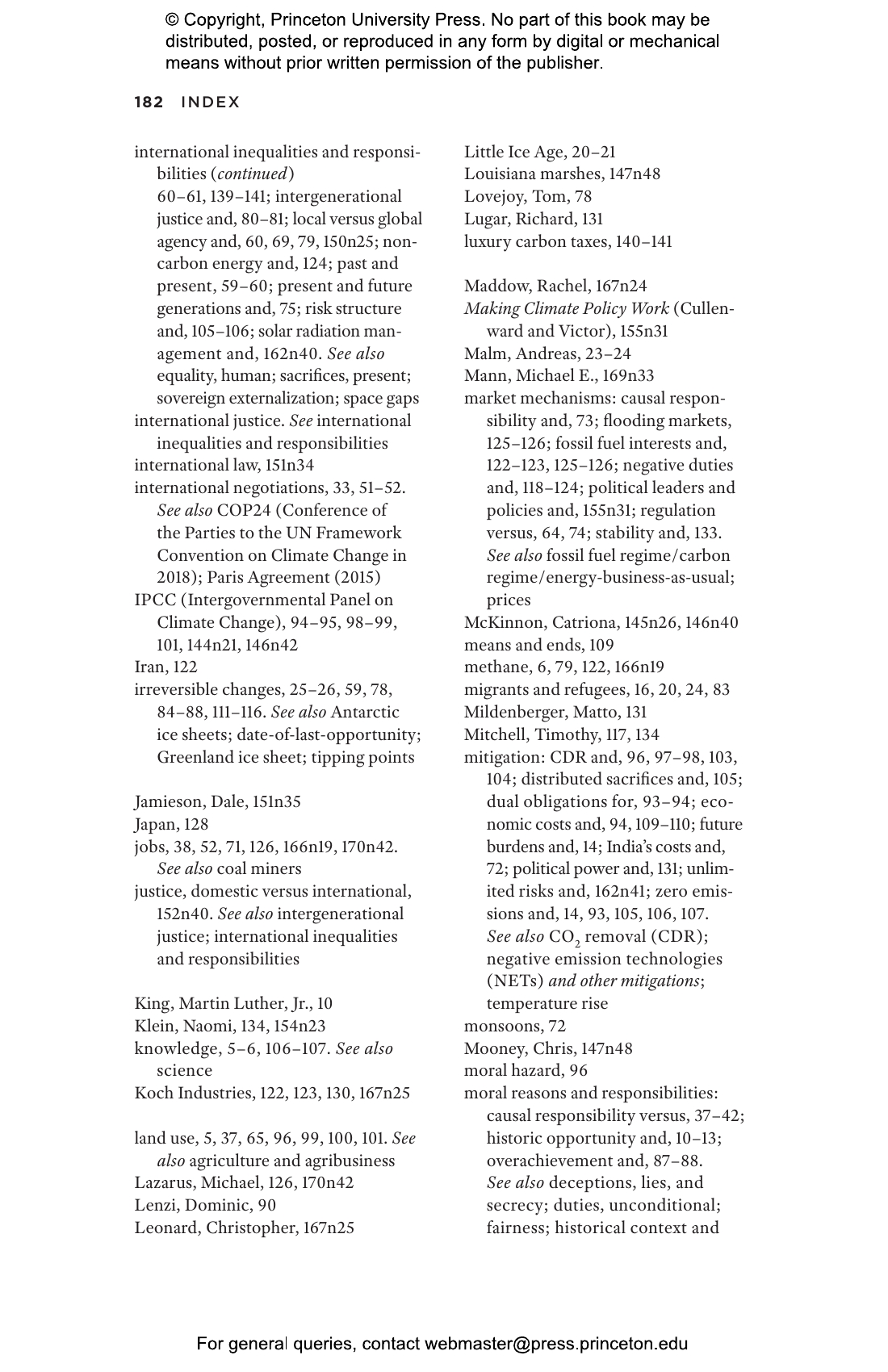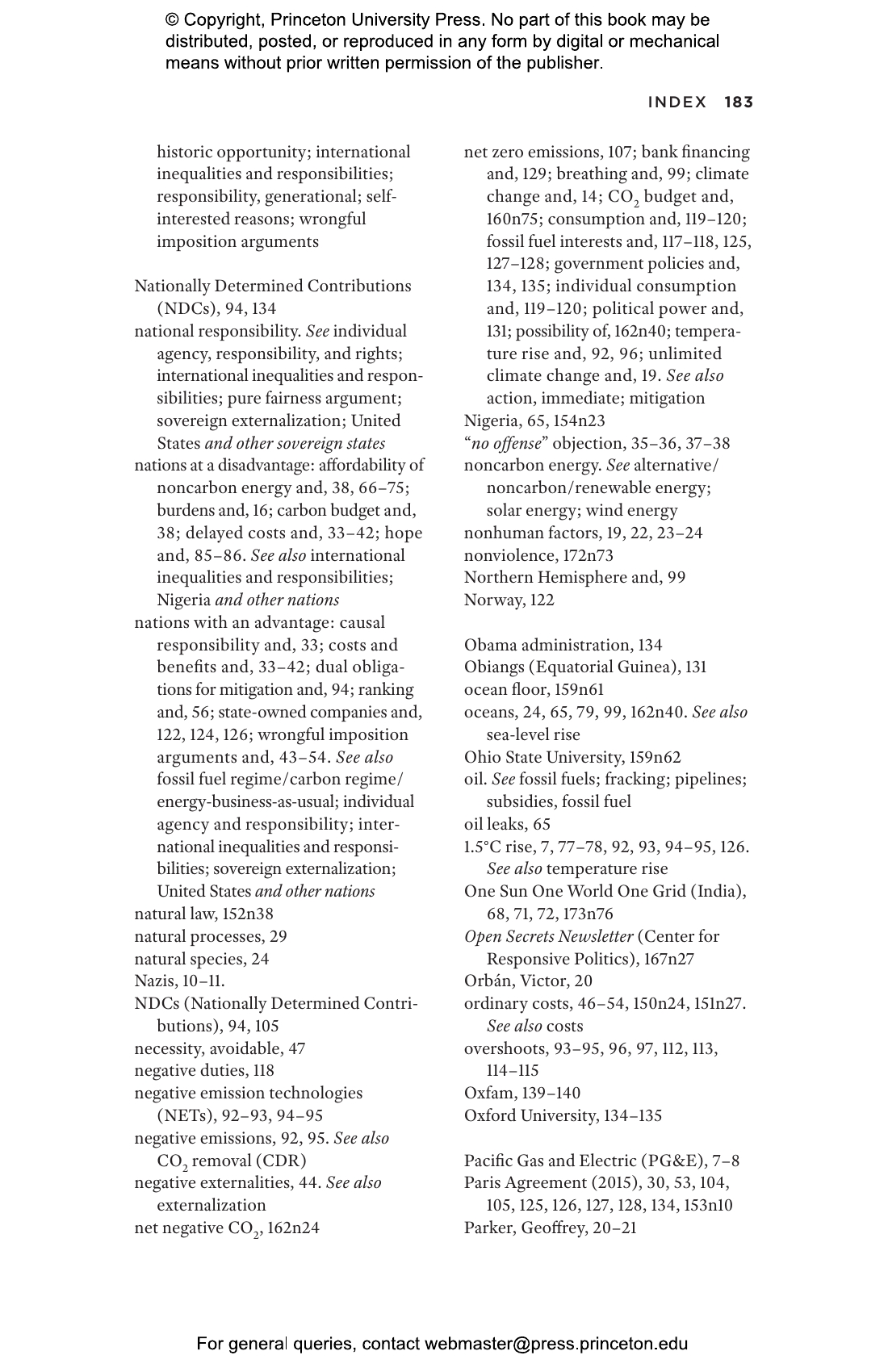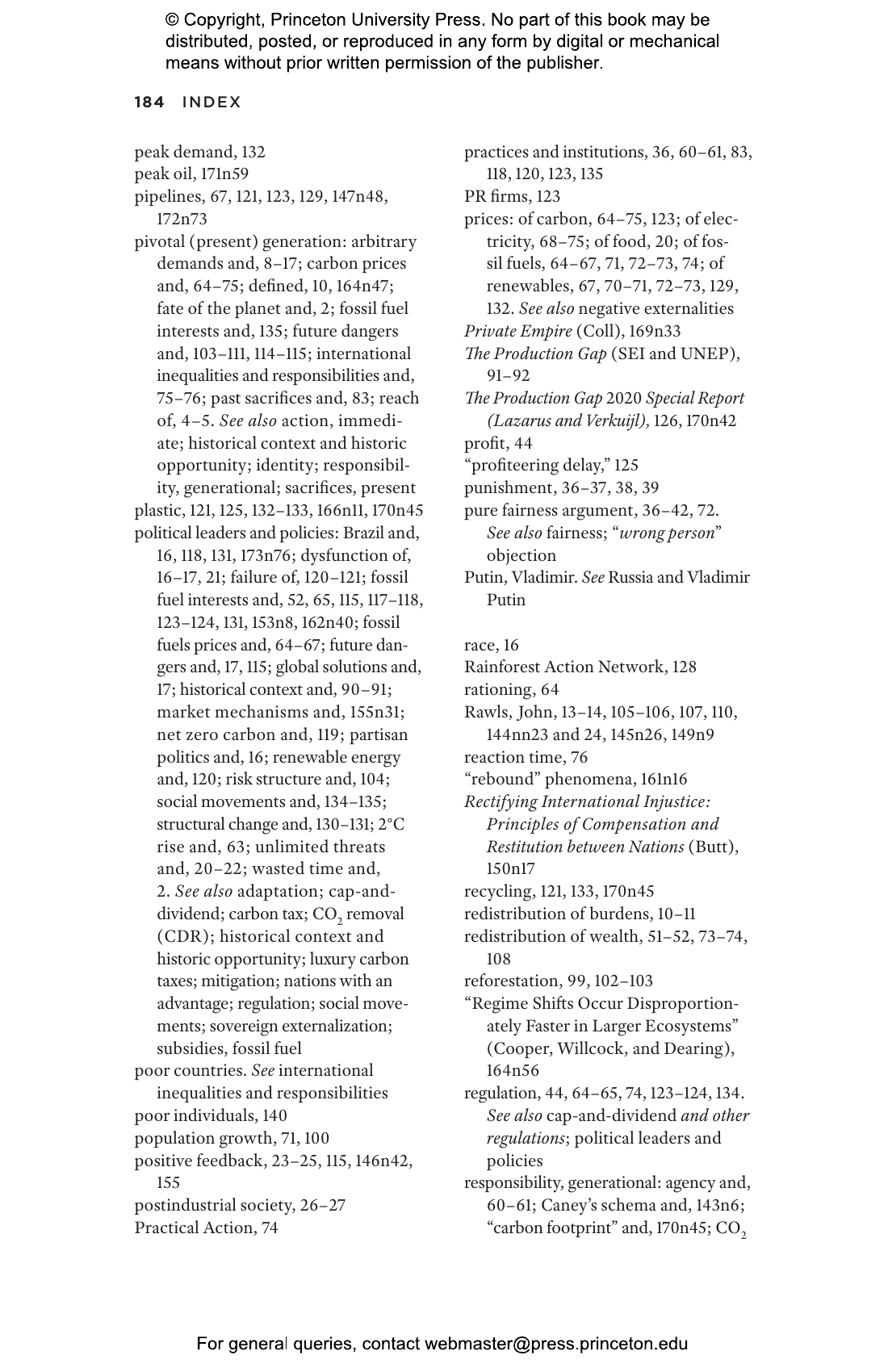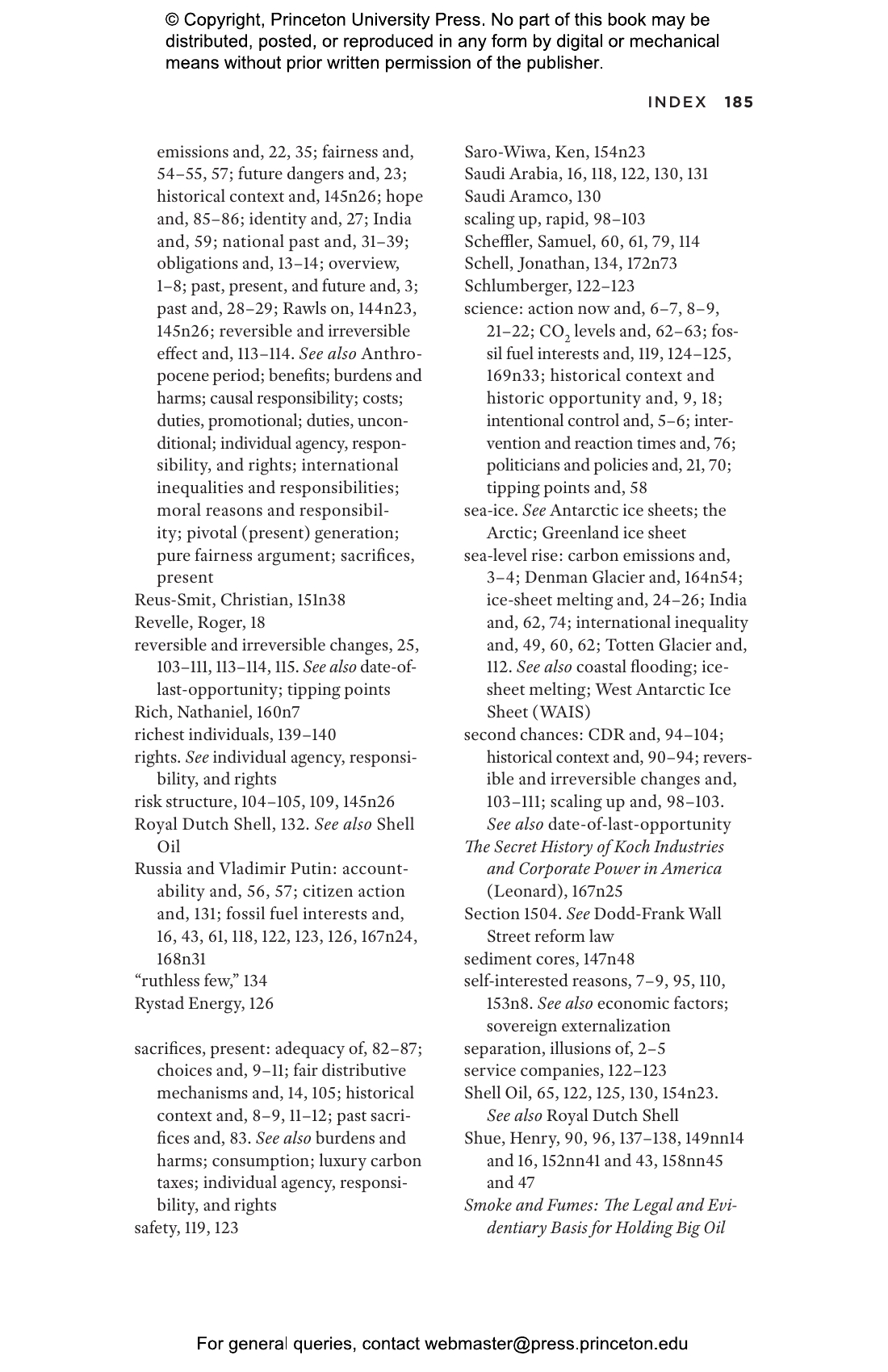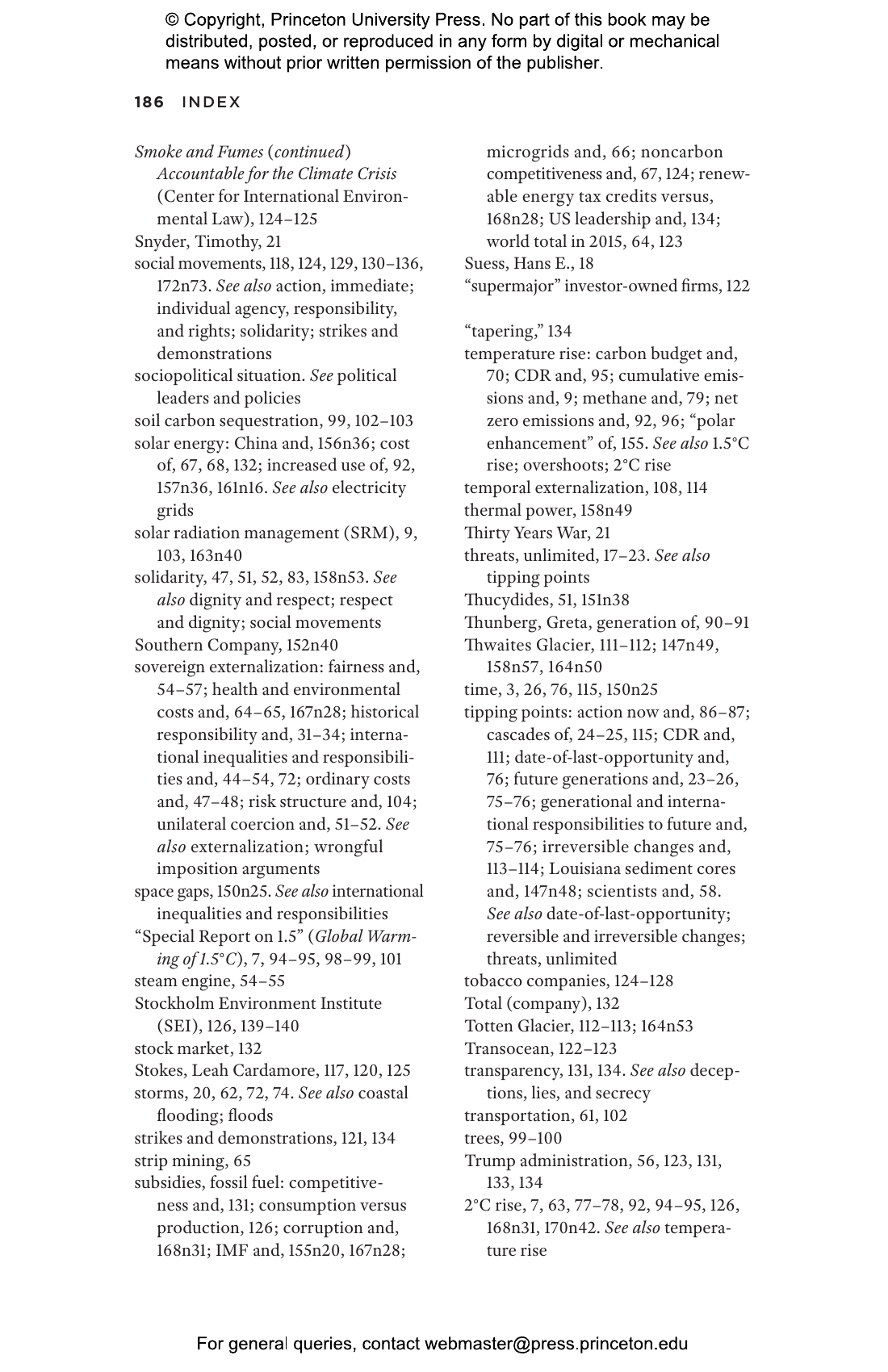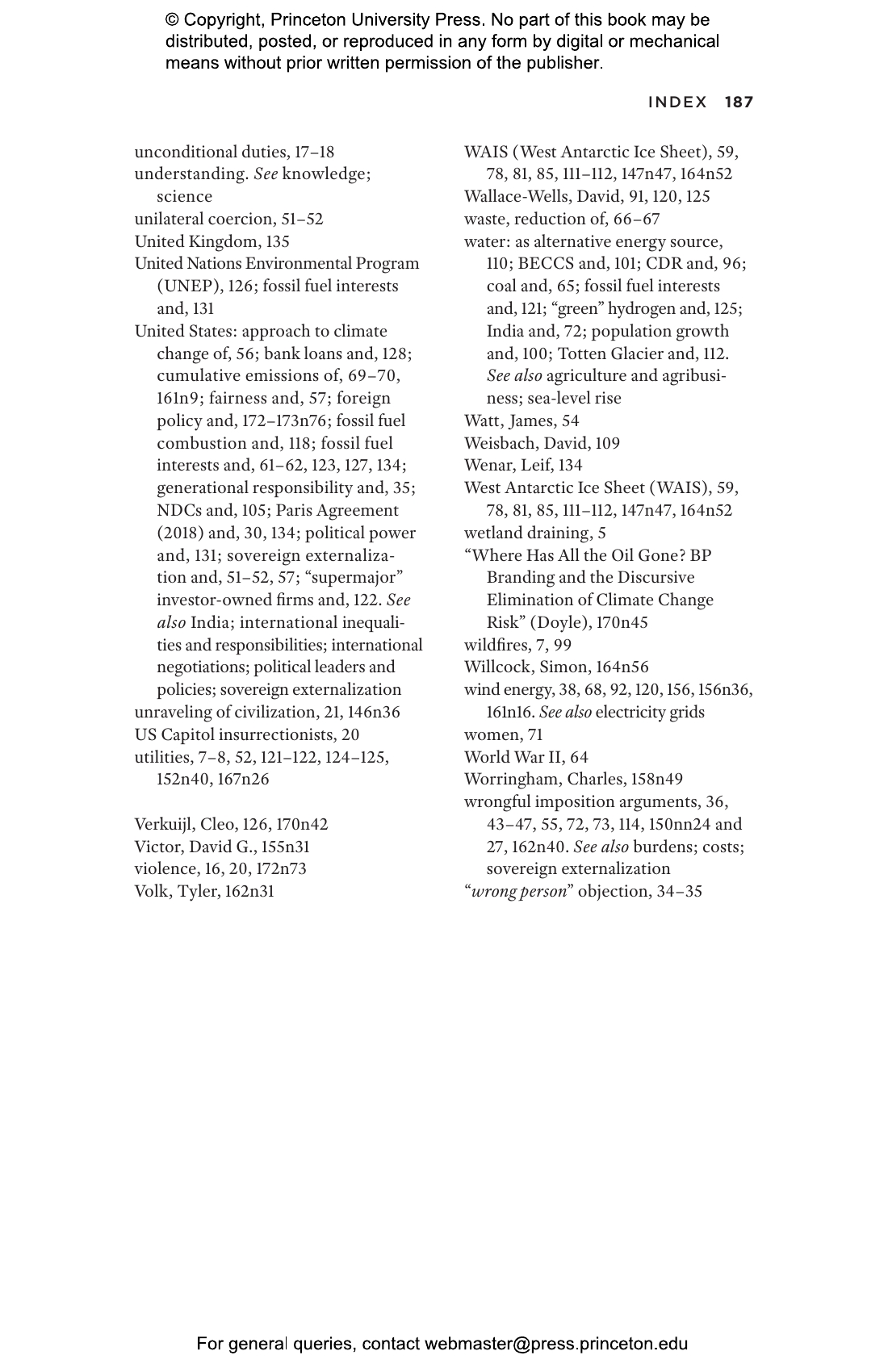Climate change is the supreme challenge of our time. Yet despite growing international recognition of the unfolding catastrophe, global carbon emissions continue to rise, hitting an all-time high in 2019. Unless humanity rapidly transitions to renewable energy, it may be too late to stop irreversible ecological damage. In The Pivotal Generation, renowned political philosopher Henry Shue makes an impassioned case for taking immediate, radical action to combat global warming.
Shue grounds his argument in a rigorous philosophical analysis of climate change’s moral implications. Unlike previous generations, which didn’t fully understand the danger of burning carbon, we have the knowledge to comprehend and control rising carbon dioxide levels. And unlike future generations, we still have time to mitigate the worst effects of global warming. This generation has the power, and thus the responsibility, to save the planet. Shirking that responsibility only leaves the next generation with an even heavier burden—one they may find impossible to bear.
Written in direct, accessible language, The Pivotal Generation approaches the latest scientific research with a singular moral clarity. It’s an urgently needed call to action for anyone concerned about the planet’s future.
Awards and Recognition
- Shortlisted for the Grawemeyer Award for Ideas Improving World Order
"Highly recommended."—Choice Reviews
"This easily accessible text is a must-read for everyone, but especially for those in privileged positions who still wonder why societies in the global North need to get their act together"—Milla Vaha, International Affairs
"A rich, politically engaged, action-prompting and effortless read of a book."—Coralie Boulard, Global Environmental Politics
"An invaluable guide to countering commonplace arguments on the avoidance of national and individual responsibility for dealing with climate change."—John Vogler, Perspectives on Politics
“Henry Shue’s reflection on climate change, informed by science, history, ethics, and philosophy, not only makes the case that we are the ‘pivotal generation’ to change the direction of our climate, but also presents a powerful, specific, and far from hopeless vision for how we should approach this unique challenge.”—Mary Robinson, former president of Ireland
“This is a splendid and galvanizing book. In a worsening climate crisis that often generates despair, we need a direct call to action. Henry Shue speaks to us as ‘the pivotal generation’: we are at the date of last opportunity to act, there are no excuses, and if we immediately kick-start aggressive mitigation efforts we could save future people from vast harms. Shue writes luminously, leaving us in no doubt about the urgency of this moral imperative.”—Catriona McKinnon, author of Climate Change and Future Justice
“Over the past three decades, political philosopher Henry Shue has done more than anyone else to keep justice at the center of the struggle to stop climate change. Piercing and clear-minded, this book lays down a sobering challenge. Will we, the pivotal generation, act on climate change as justice demands?”—Dale Jamieson, author of Reason in a Dark Time: Why the Struggle against Climate Change Failed—and What It Means for Our Future
���� The Pivotal Generation, Henry Shue argues that today’s citizens of developed countries—inheritors of fossil fuel benefits and liabilities—must grasp the mantle of leadership, confronting those choosing greed over the future. We have loaded the proverbial camel’s back to breaking, creating a moral obligation to halt our planetary plunge into the inferno. To be complacent is to be complicit. Future generations await our choice.”—Nancy Taylor Sorrells, historian and conservationist, Alliance for the Shenandoah Valley
“This is a very important book on the most urgent problem of our times. Henry Shue shows that our generation has an undeniable moral responsibility to tackle the climate crisis right now. We must take control of our legacy, and avoid leaving an uninhabitable world behind.”—Ingrid Robeyns, Ethics Institute at Utrecht University
